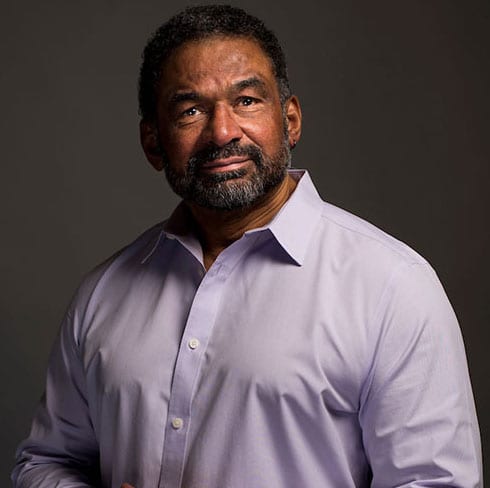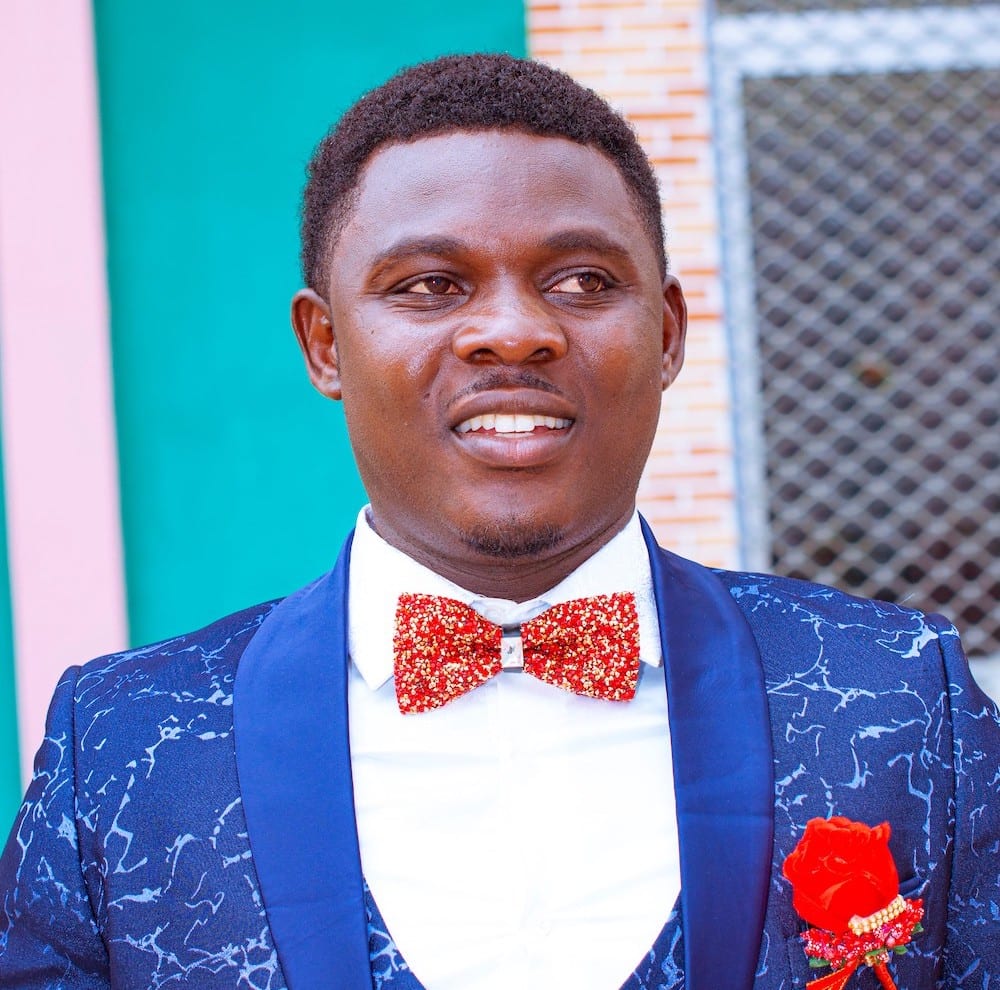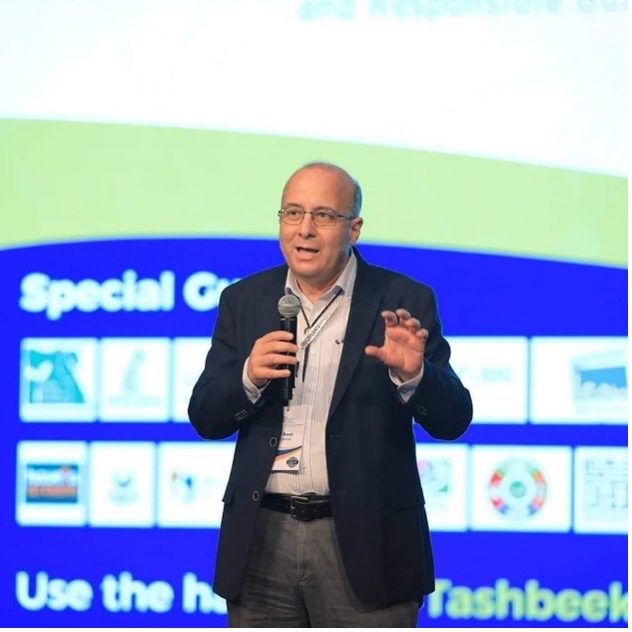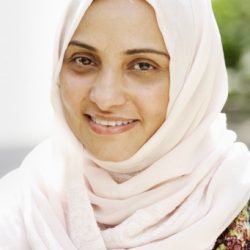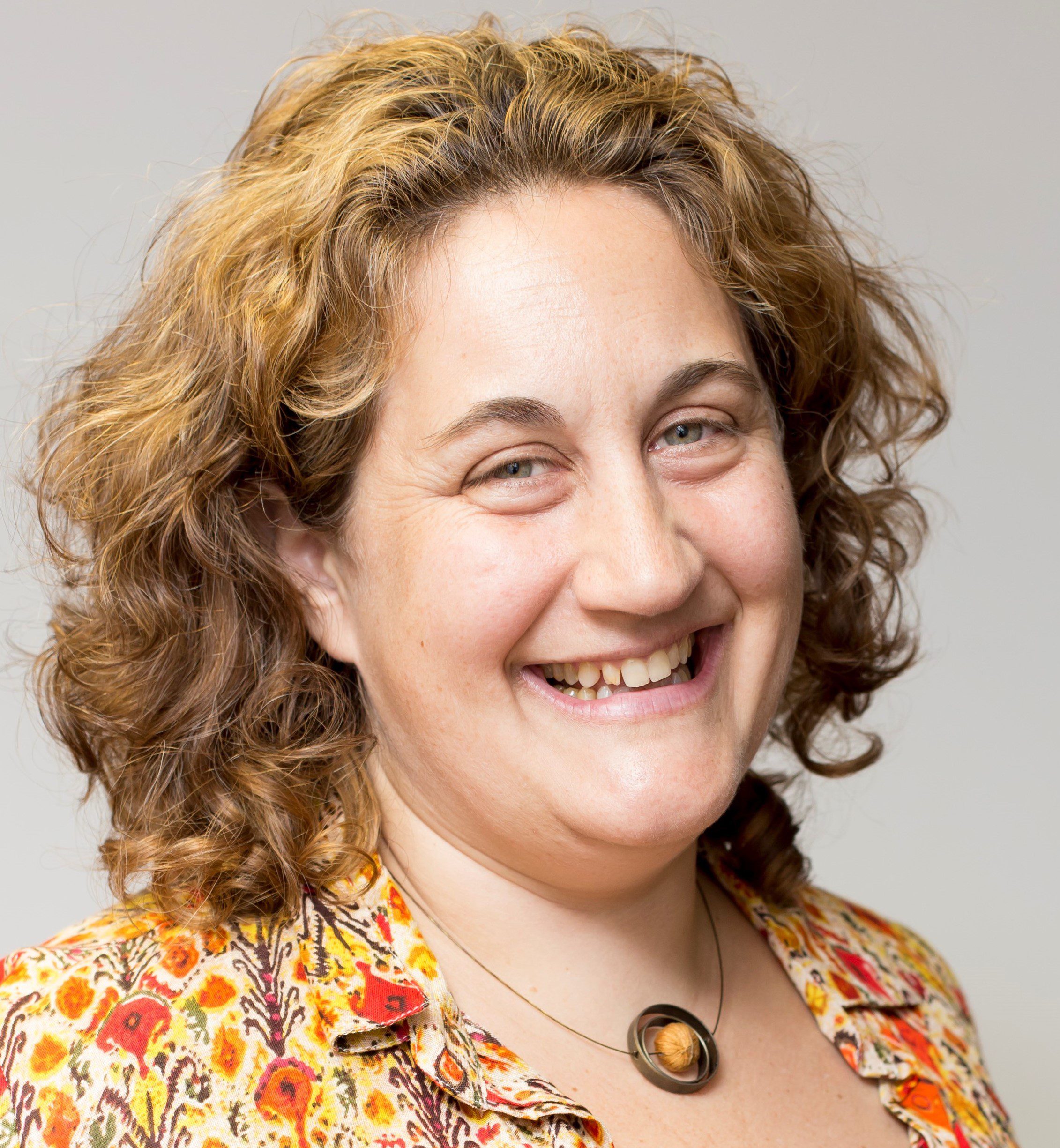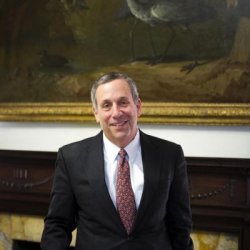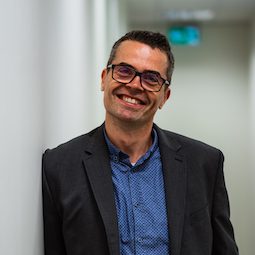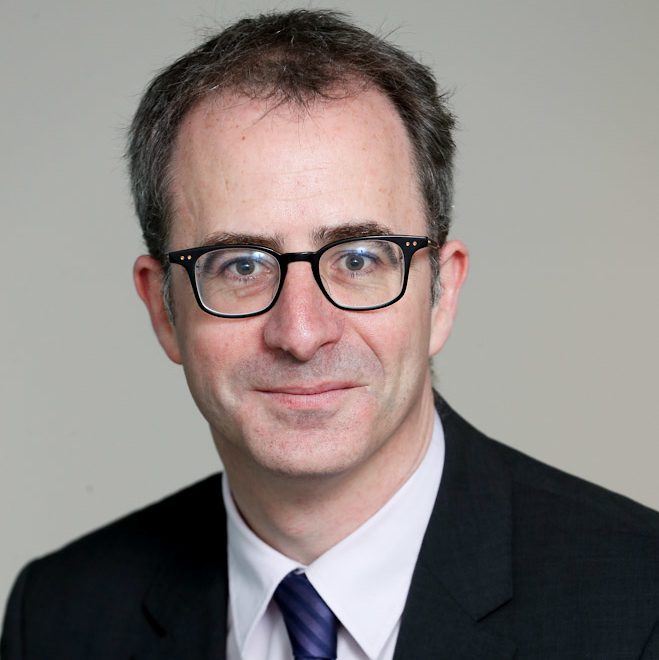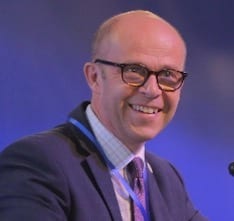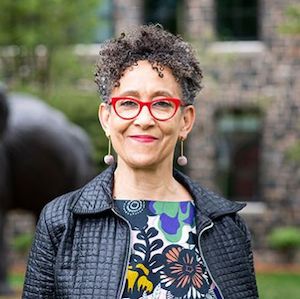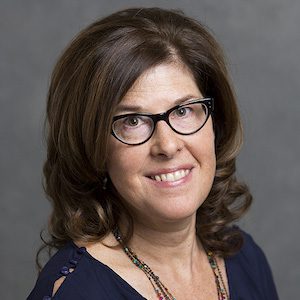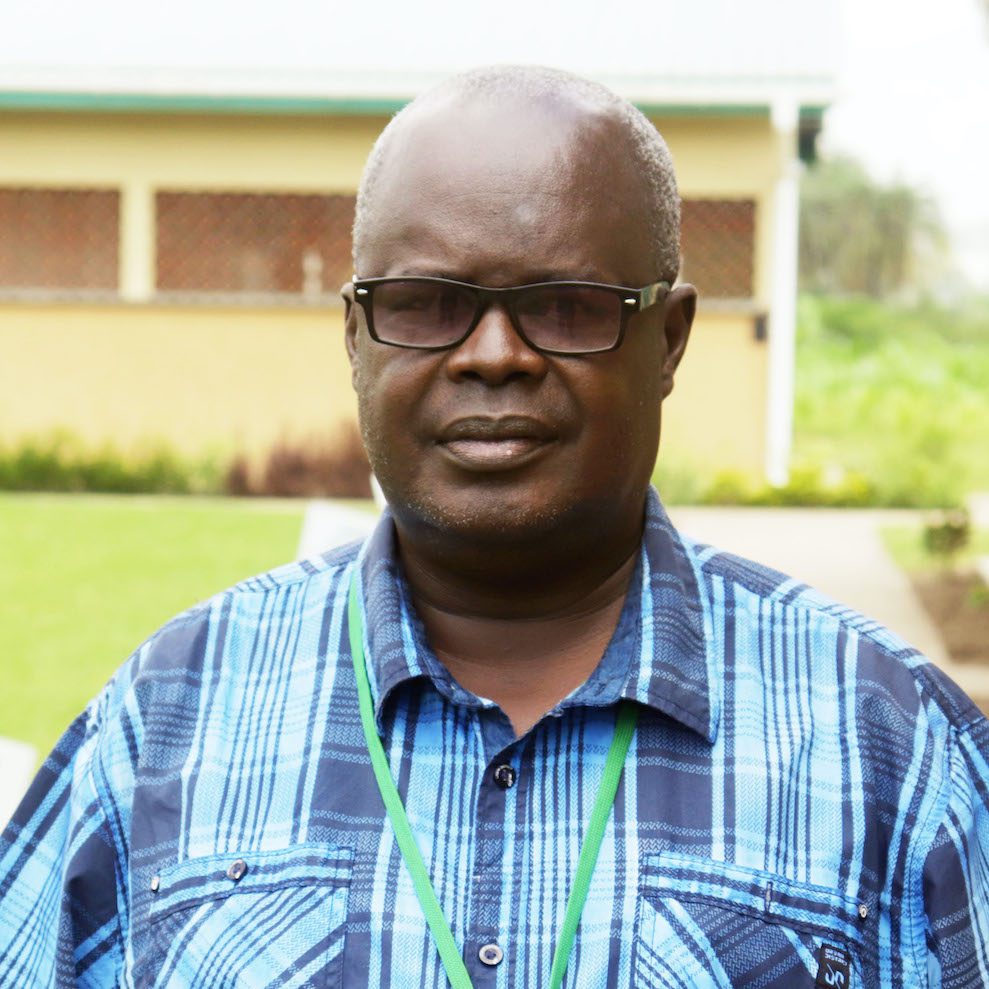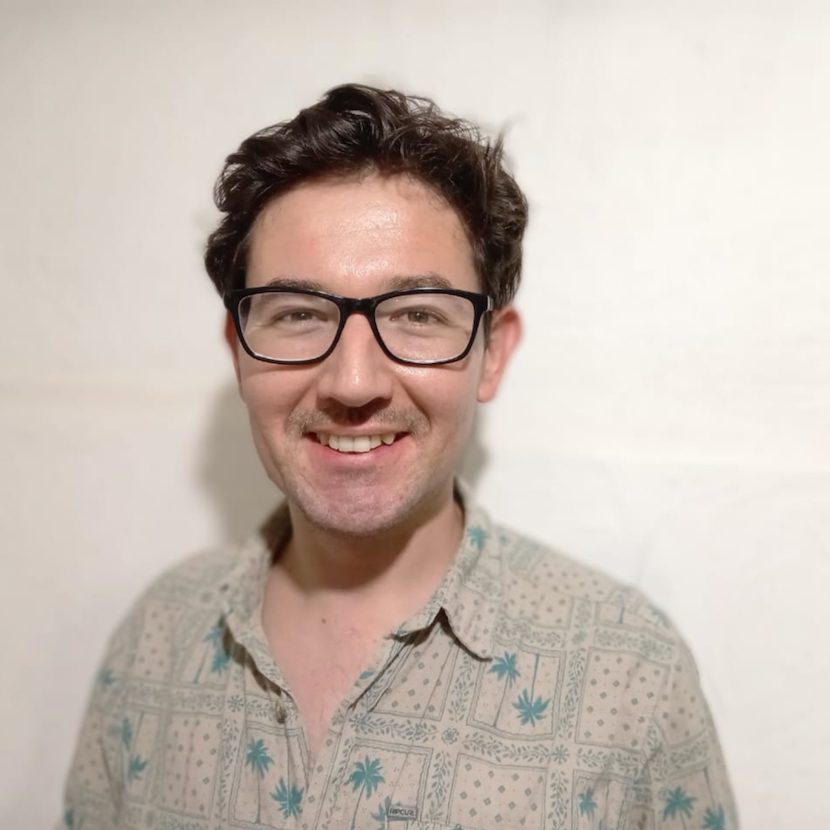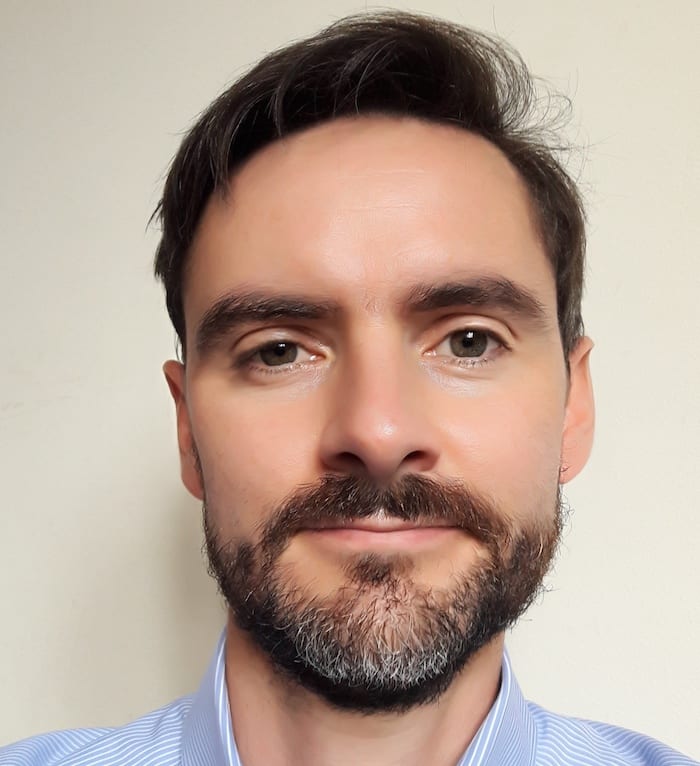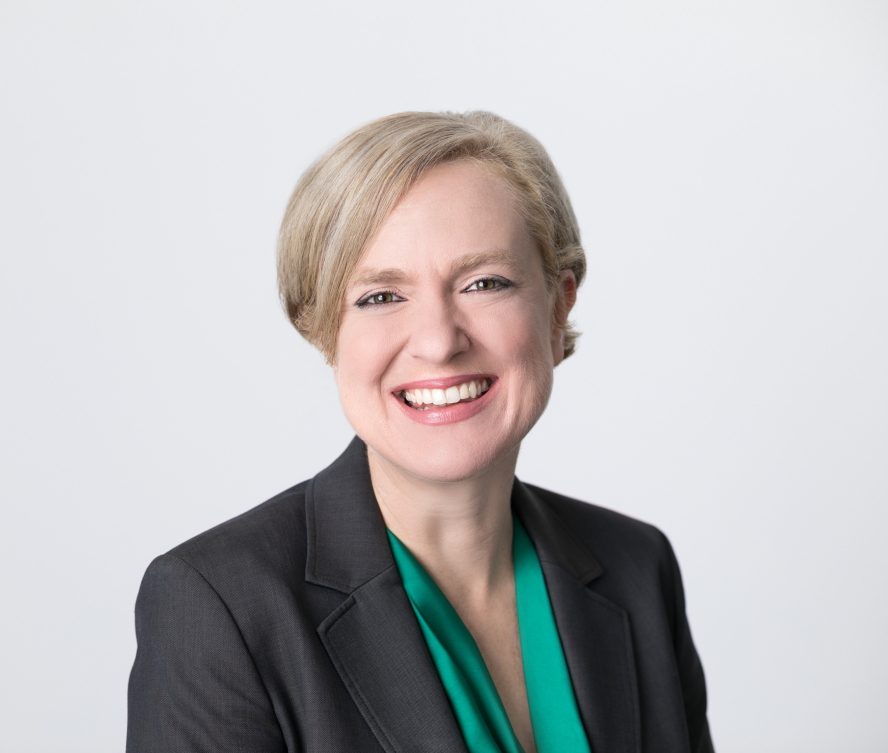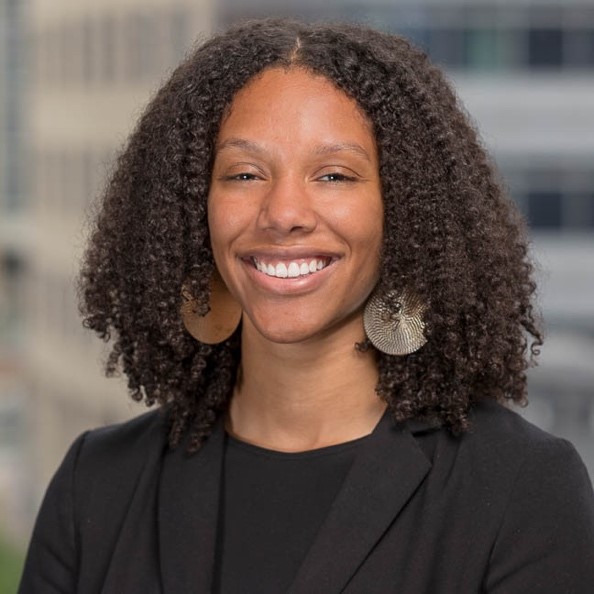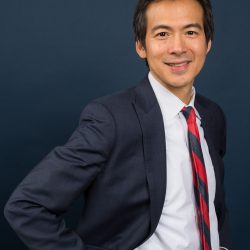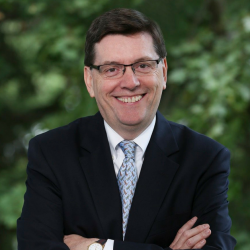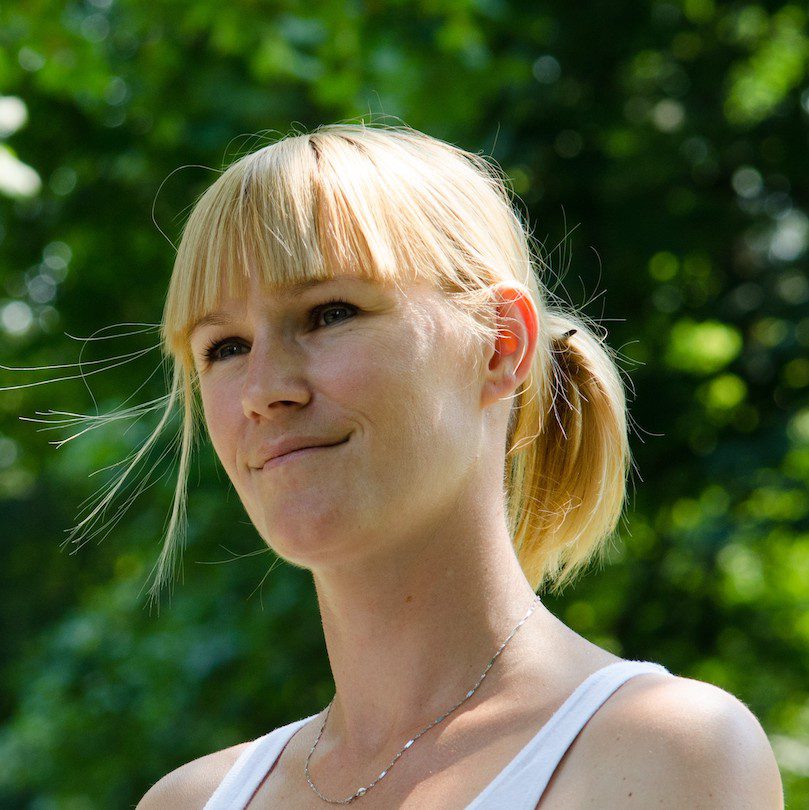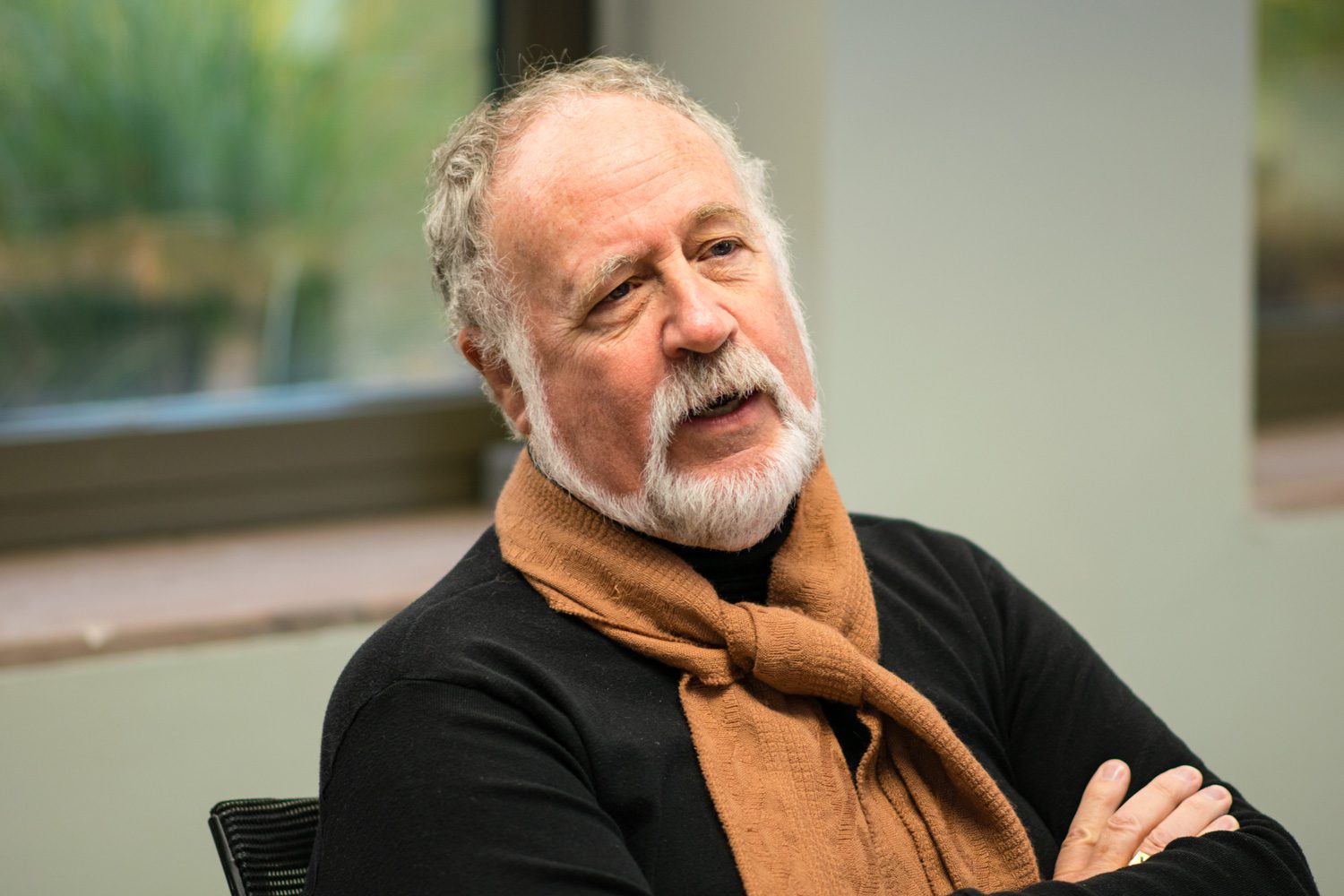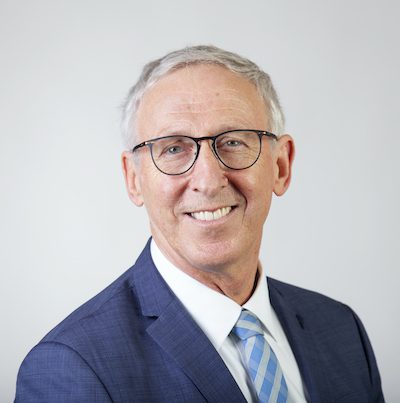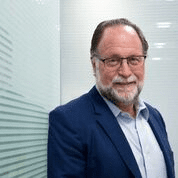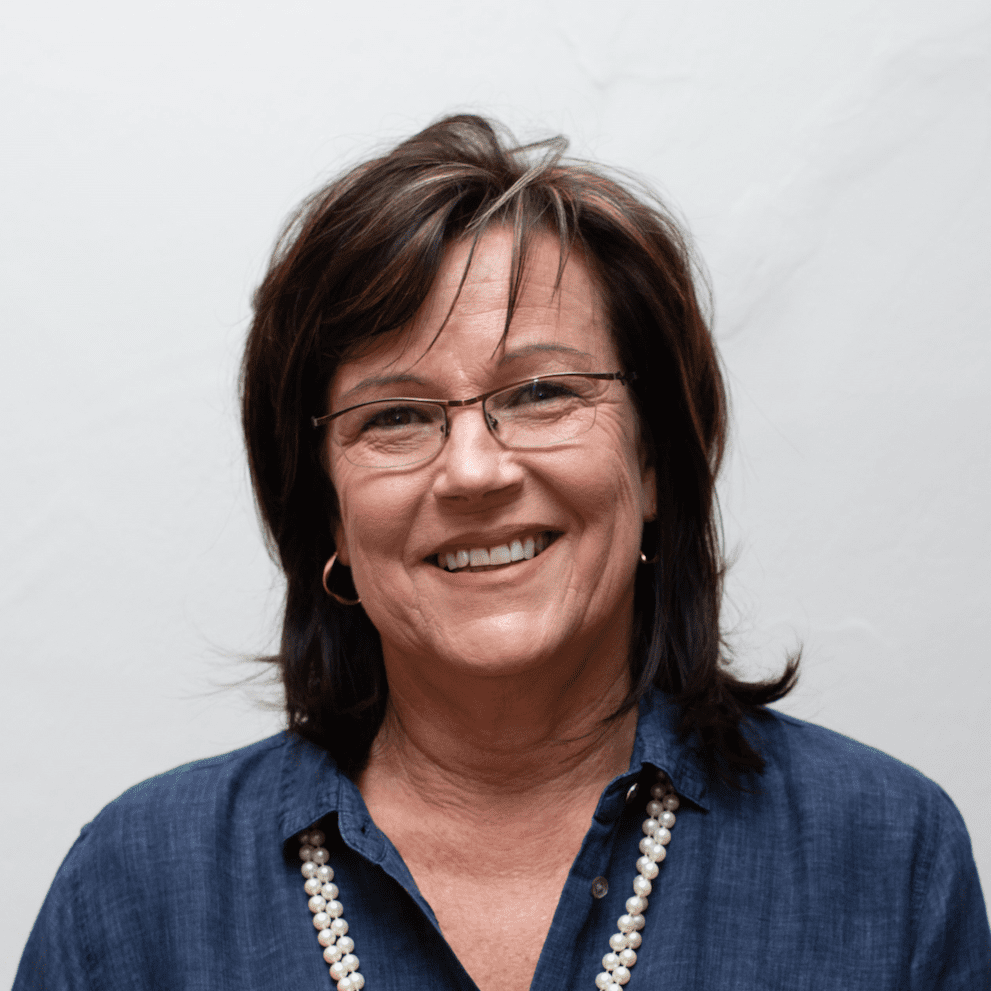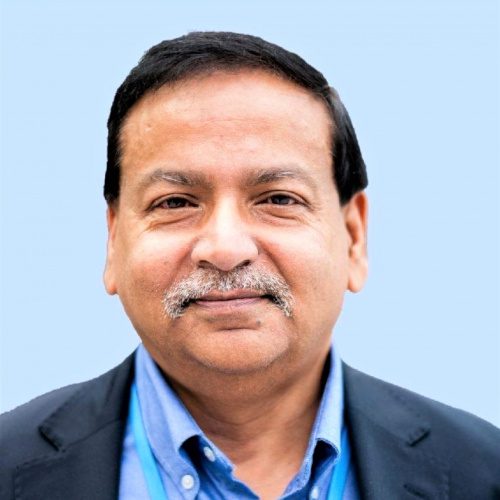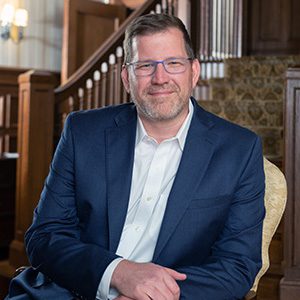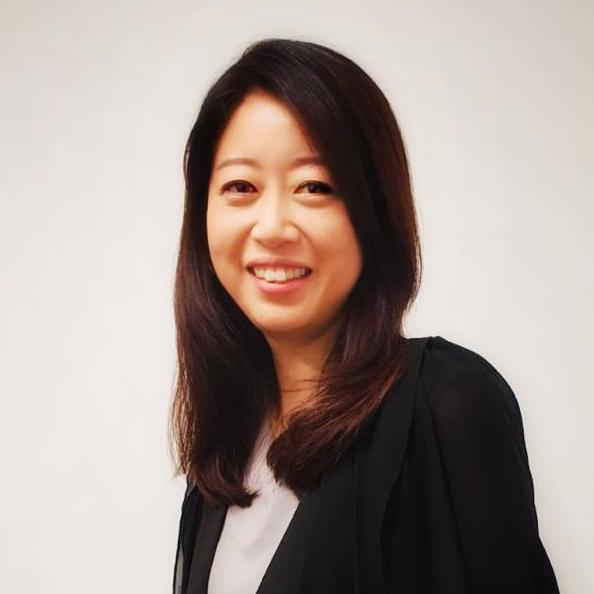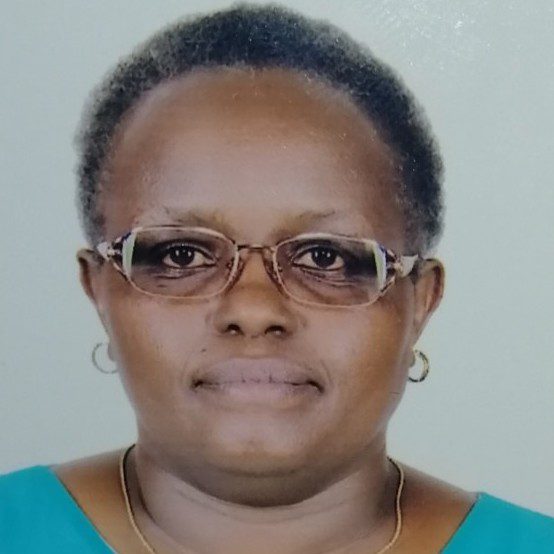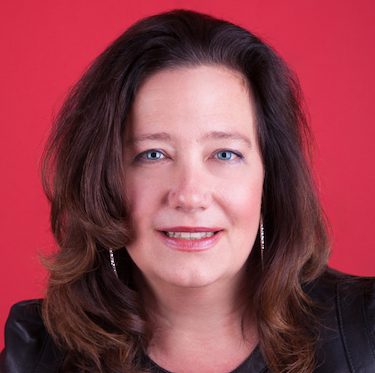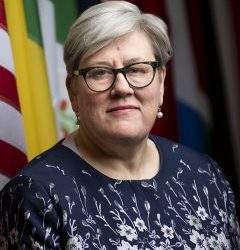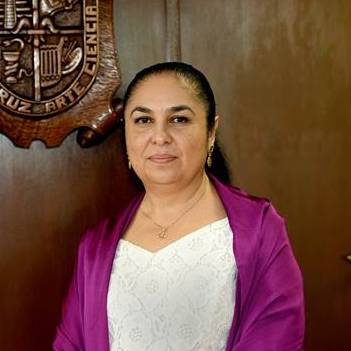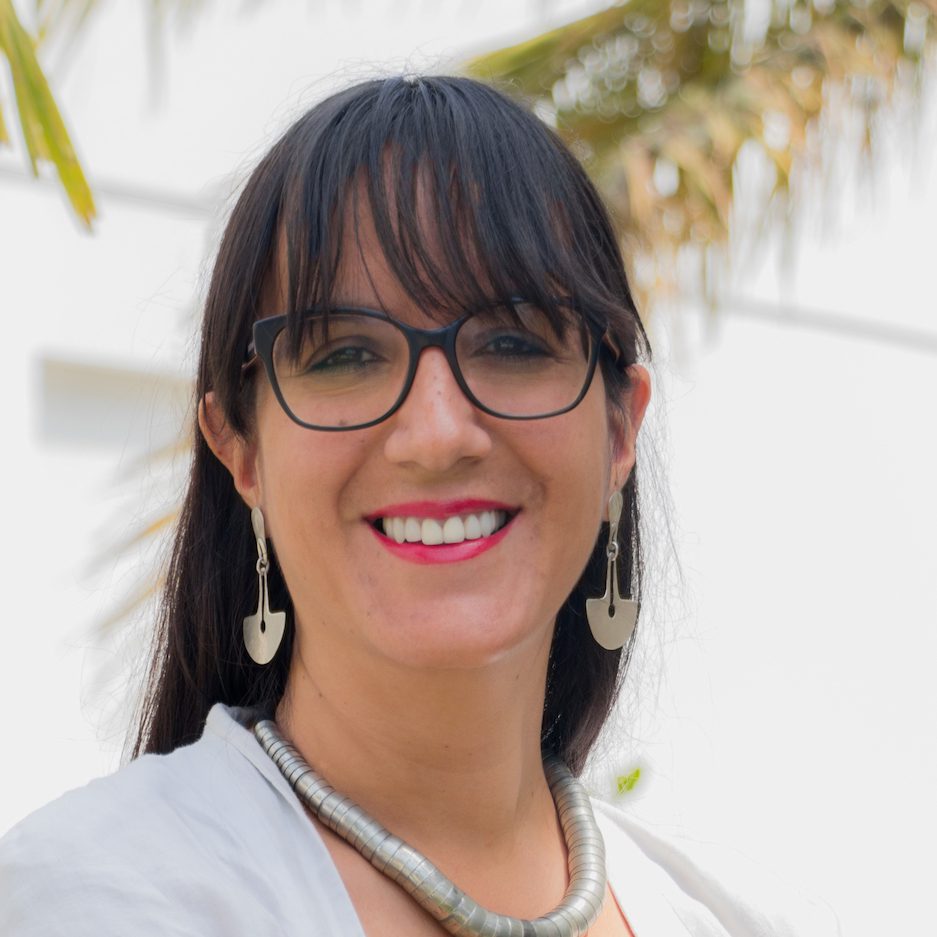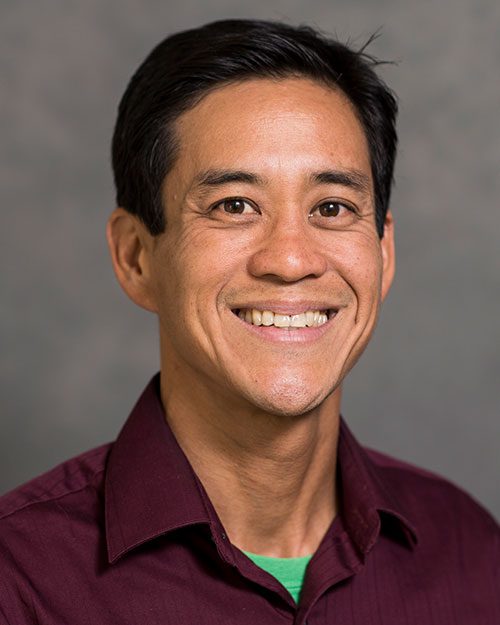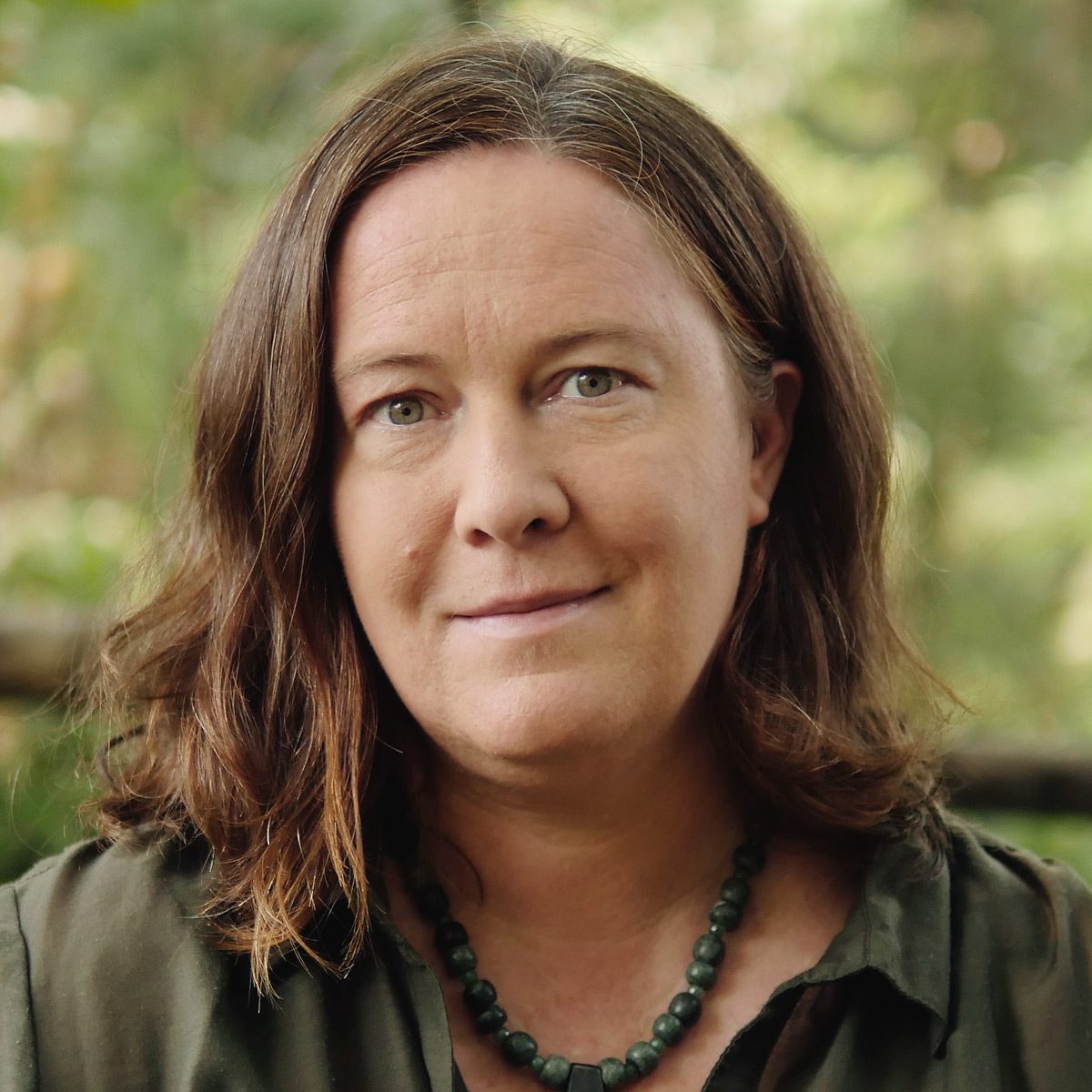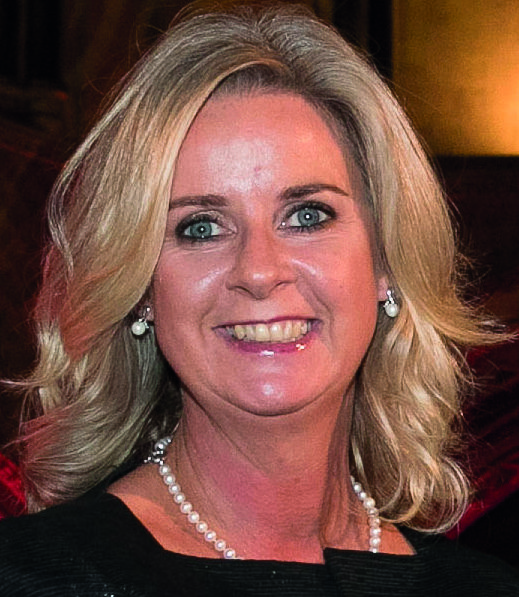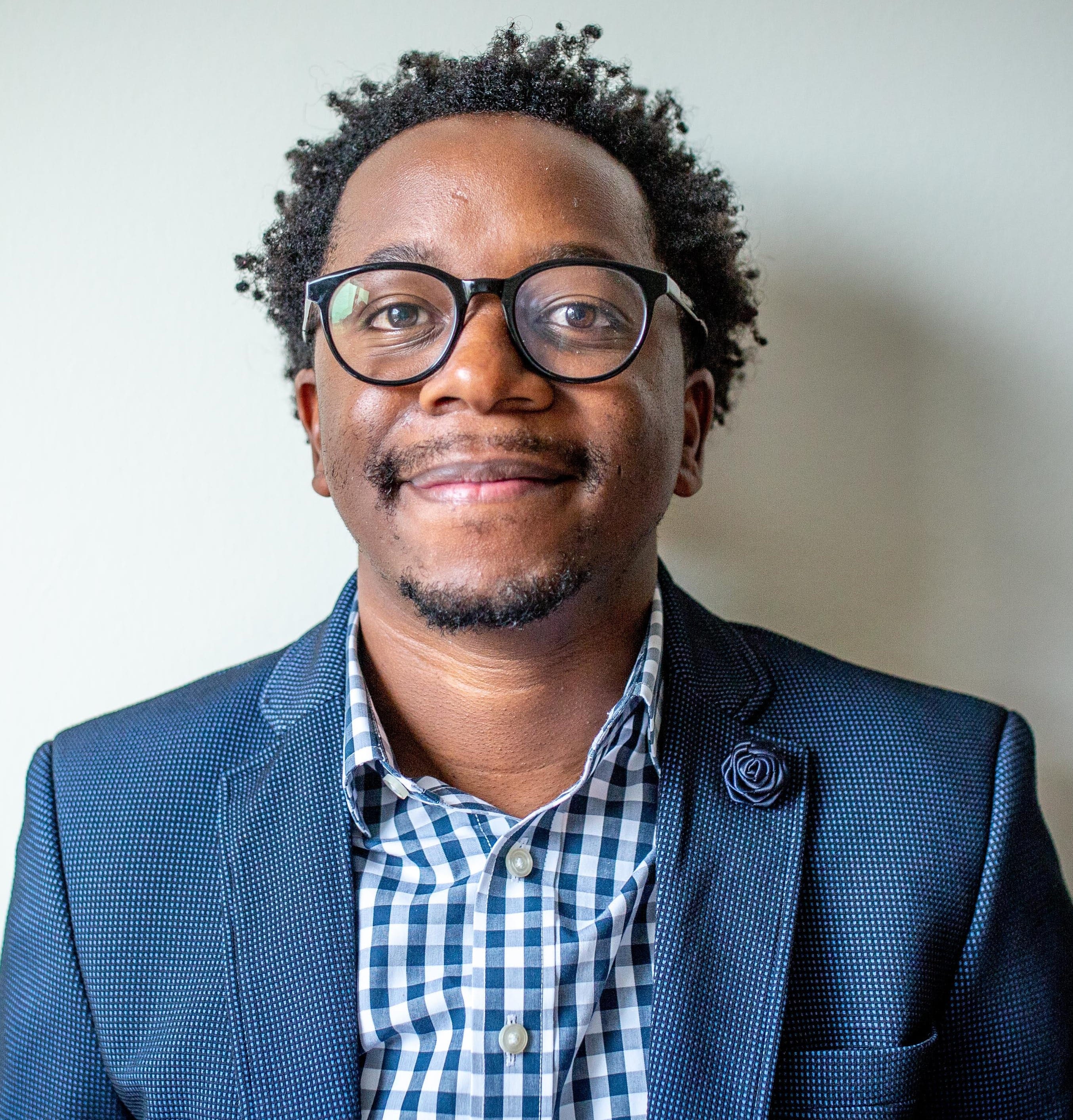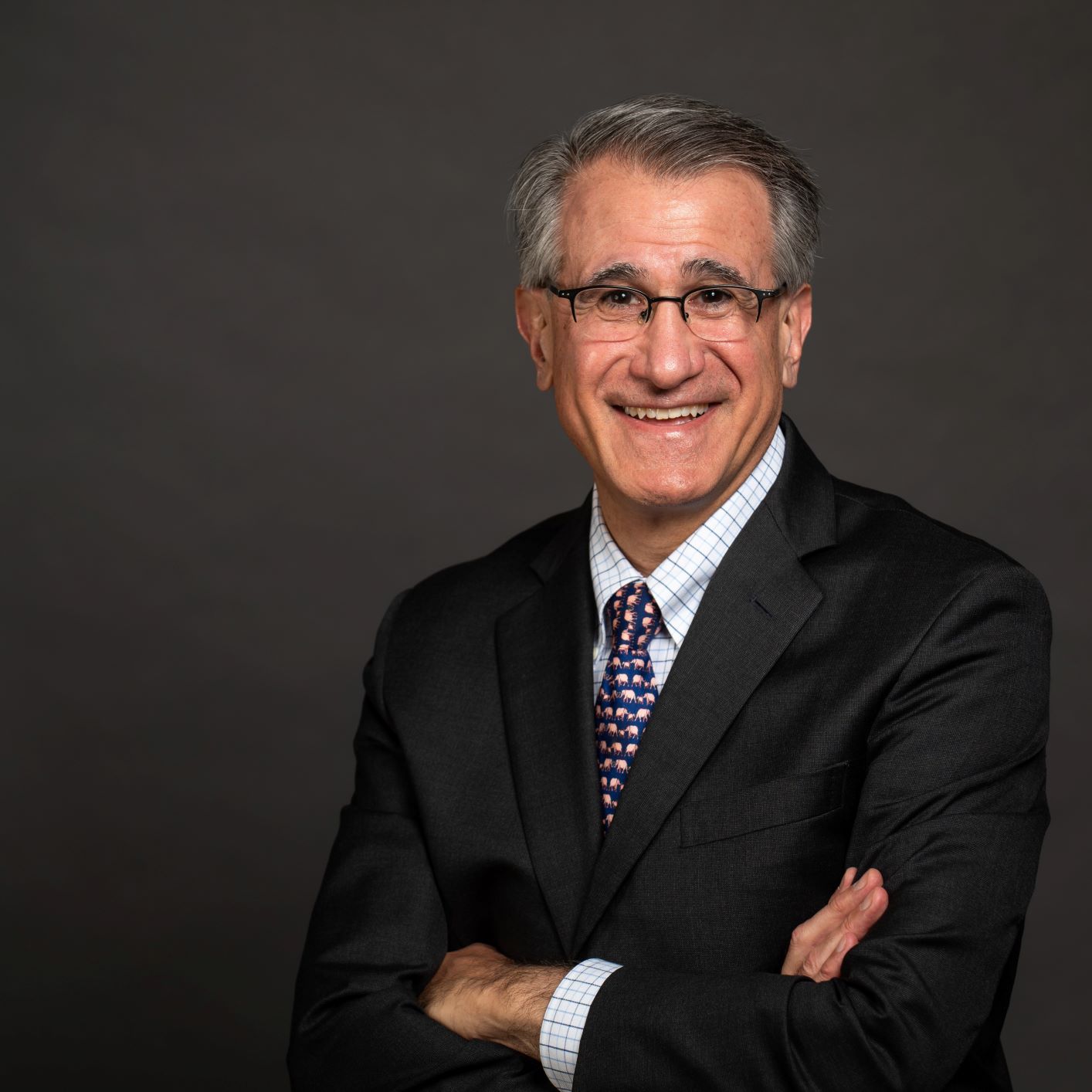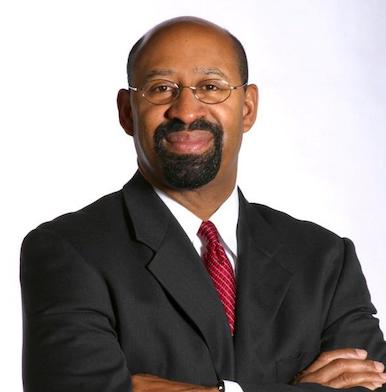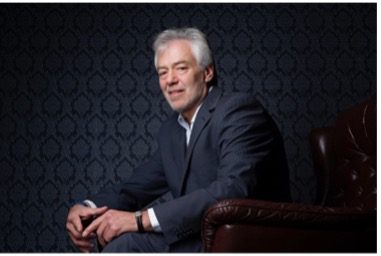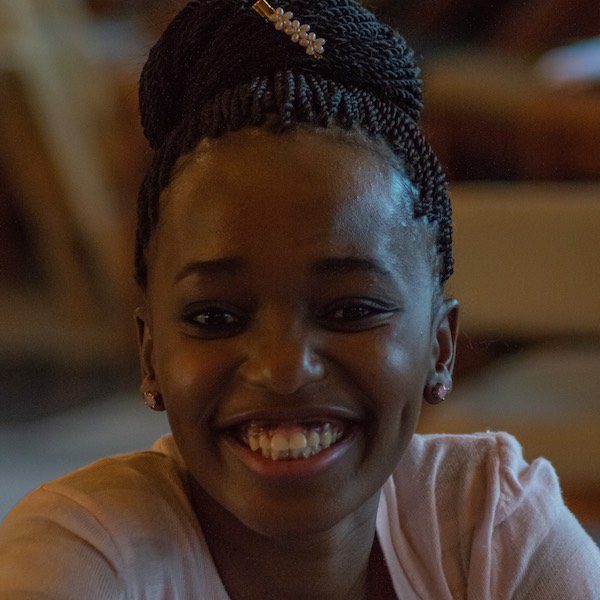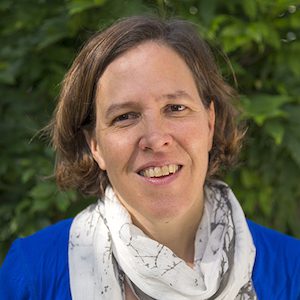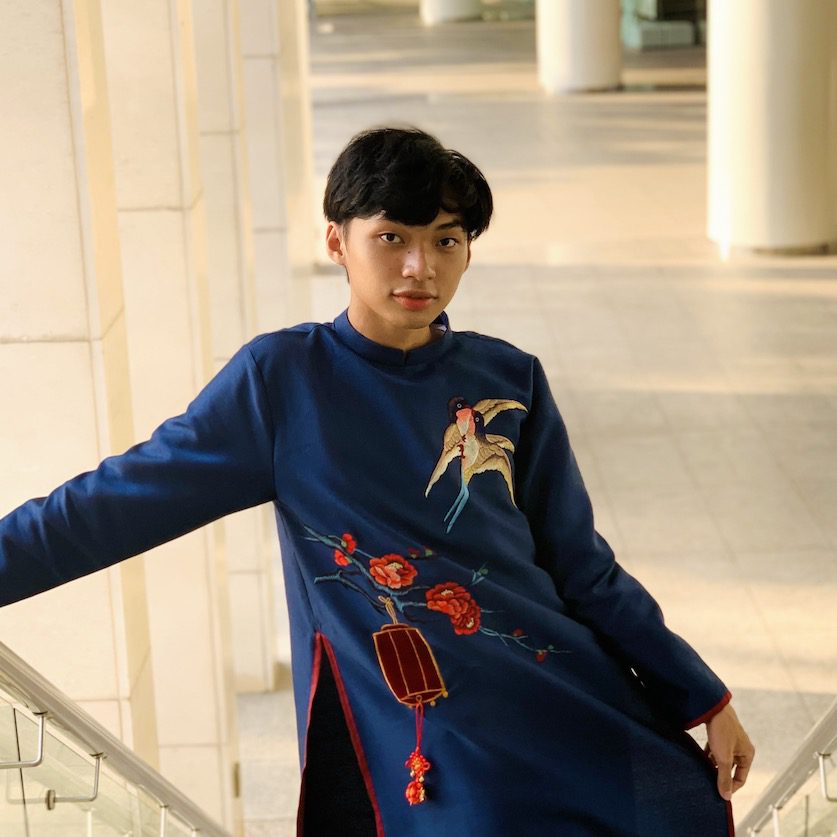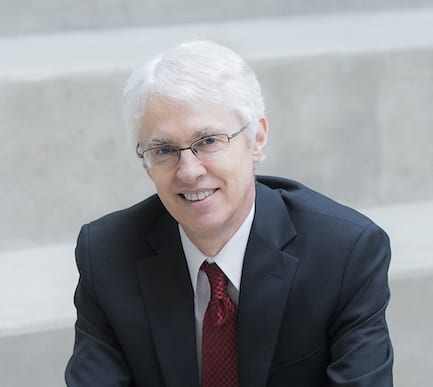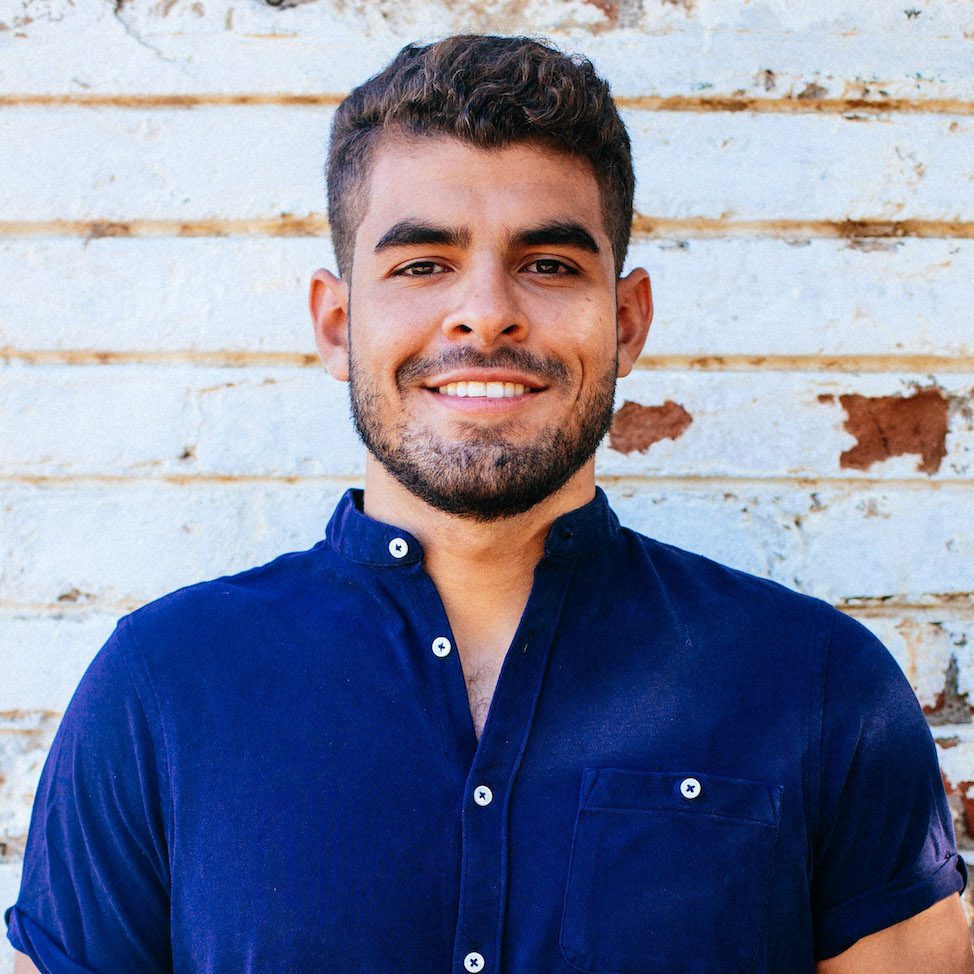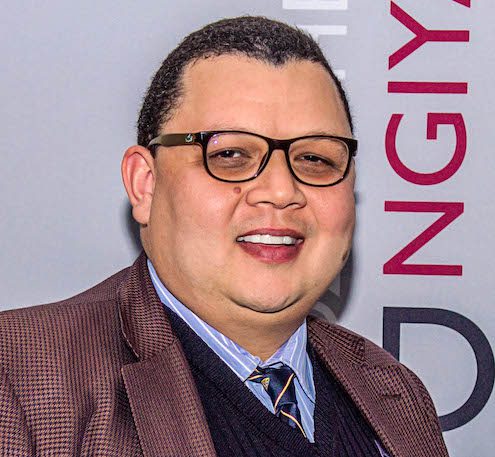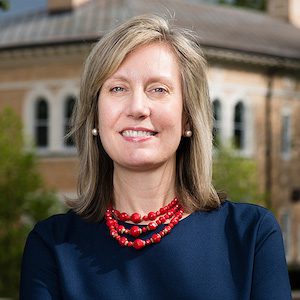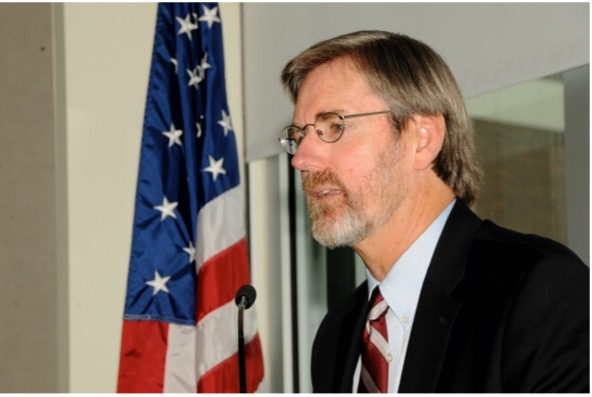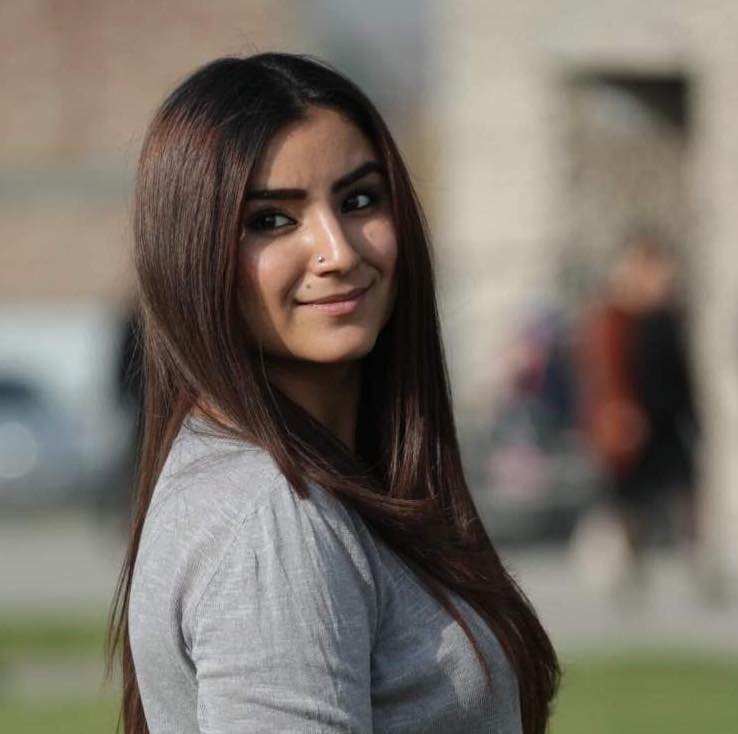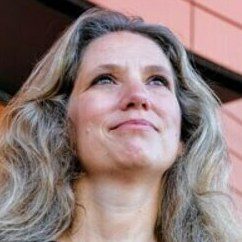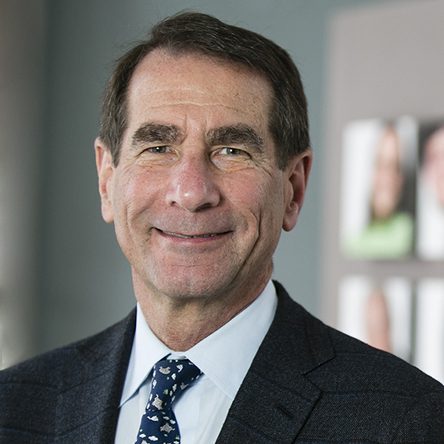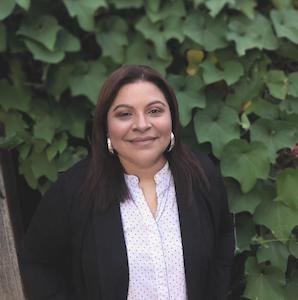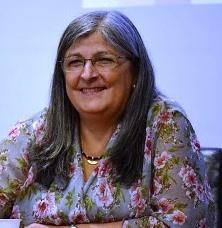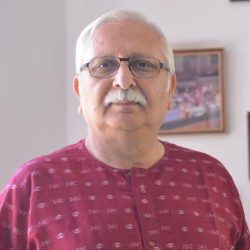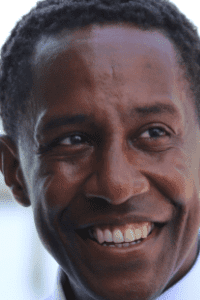TNLC2021: Speakers
View our growing list of TNLC 2021 Speakers below. You may also read about the TNLC 2021 Keynote Speaker, U.S. Special Presidential Envoy for Climate John Kerry here.
Miguel Ángel has a BSc in biology from the National Autonomous University in Mexico (UNAM), a master’s in biotechnology from University of Colima, a specialization in Ecological Agriculture and Farming from the International University of Andalucía; and his MSc and PhD in Agroecology, Sociology and Sustainable Rural Development from the University of Cordoba in Spain. He has participated as a visiting professor in various universities and research centres in Colombia, Costa Rica, Cuba, Bolivia, Brazil and Spain. He teaches on a Masters in Agroecology: An Approach for Rural Sustainability for the International University of Andalucía in coordination with the Universities of Cordoba and Pablo de Olavide in Spain.
He is currently a full-time lecturer in the Faculty of Agricultural Sciences at Universidad Veracruzana (UV), coordinates the academic group on “Alternative techniques for Sustainable Agriculture” and is head of UV’s Sustainability Coordination. He has given over 100 training courses for HEIs, government and the private sector; presented at over 60 international conferences and published over 15 scientific articles, 18 chapters and 3 books. He has supervised 53 undergraduate, masters and PhD thesis. He is also a member of the University of Cordoba’s Institute of Sociology and Farming (ISEC). He works on research-development projects on production and consumption of organic food and agroecology in the rural, peri-urban and urban settings.
Julian Agyeman Ph.D. FRSA FRGS is a Professor of Urban and Environmental Policy and Planning at Tufts University. He is the originator of the increasingly influential concept of just sustainabilities, the intentional integration of social justice and environmental sustainability. He centers his research on critical explorations of the complex and embedded relations between humans and the urban environment, whether mediated by governments or social movement organizations, and their effects on public policy and planning processes and outcomes, particularly in relation to notions of justice and equity.
He believes that what our cities can become (sustainable, smart, sharing and resilient) and who is allowed to belong in them (recognition of difference, diversity, and a right to the city) are fundamentally and inextricably interlinked. We must therefore act on both belonging and becoming, together, using just sustainabilities as the anchor, or face deepening spatial and social inequities and inequalities.
He is the author or editor of 12 books, including Just Sustainabilities: Development in an Unequal World (MIT Press, 2003), Cultivating Food Justice: Race, Class and Sustainability (MIT Press, 2011), and Sharing Cities: A Case for Truly Smart and Sustainable Cities (MIT Press, 2015), one of Nature’s Top 20 Books of 2015. In 2018, he was awarded the Athena City Accolade by KTH Royal Institute of Technology, Stockholm, Sweden, for his “outstanding contribution to the field of social justice and ecological sustainability, environmental policy and planning“.
For a full biography please visit: https://julianagyeman.com
Elvis Akomoneh is the Vice President for Institutional Advancement at Meridian Global University and a Lecturer at the University of Bamenda, Cameroon. He holds a PhD in Microbiology with research interest in emerging infectious diseases, an established cause of morbidity and mortality in his Sub-Saharan African region.
Elvis actively embeds civic engagement in his teaching and research. He is the Founder of Access Care Foundation, a community-based organization partnering with Higher Education Institutions in healthcare service delivery to the underserved in hard-to-reach areas. He is an active player in the fight against highly prevalent communicable diseases like HIV, malaria, typhoid, diarrhea, tuberculosis and COVID-19 as well as maternal and neonatal mortality in the conflict afflicted areas in Cameroon.
Ali Awni is Professor of Practice at the Business School, and Director of the John D. Gerhart Center for Philanthropy, Civic Engagement and Responsible Business, The American University in Cairo (AUC). He teaches operations management courses at the undergraduate and MBA level. His areas of research are in applications of operations management in Egypt, and for SMEs in particular, operations and supply chain innovations for base of the pyramid, upgrading of operations for Egyptian exporters, and suppliers’ selection and evaluation. As a director of the Gerhart Center, he led the transition of the center to the School of Business, including the addition of responsible business theme.
Awni serves on many boards. Awni serves on the Board of the Egyptian Company for Medical investments (An Egyptian Unified Procurement Authority's company). He serves on the board of advisors of the Center of African Philanthropy and Social Investments (CAPSI) at Wits School of Business, South Africa. Awni is a representative of Africa and the Middle East on the Civil Society Advisory Body, UNEP FI Principles of Responsible Banking.
Prior to joining the AUC Awni was the Head of the Qualifying Industrial Zones (QIZ) Unit, at the Ministry of Trade & Industry, Government of Egypt. Awni was the Partner-in-charge of supply chain consulting services at KPMG Hazem Hassan in Egypt, where he guided and directed the successful completion of various projects in supply chain diagnostics, process design and performance improvement in operations and business logistics for clients in food, consumer products, industrial, apparel and pharmaceutical industries. Awni has extensive management consulting, software systems development, and operations research experience in the USA focusing on supply chain management and business logistics improvements. Ali Awni holds BS in Computer Science & Statistics from Kuwait University, MS in Systems Science from the University of Ottawa, and a Ph.D. in Operations Research from North Carolina State University.
Dr. Haifa Jamal Al-Lail joined Effat University in 1998 and began her tenure as President in May 2008. She is one of the winners of 1,000 Women for the Nobel Peace Prize 2005 and the winner of the Distinguished Arabian Woman Award in 2005. A respected author and researcher, she is well known for her expertise in privatization, and women’s empowerment. She is the author of a number of articles, and has developed and taught undergraduate and graduate courses on topics like public administration and public policy.
Before joining Effat University, Dr. Al-Lail was the first Dean of Girls’ Campus in King Abdulaziz University. She was a visiting scholar at the John F. Kennedy School of Government in 2001. She participated in the Summer Institute for Women in Higher Education Administration at Bryn Mawr College in 2000. She is a native of Saudi Arabia and received a Ph.D. in Public Policy from the University of Southern California. Dr. Al-Lail has published and spoken on a range of topics including creative learning and women’s education. She is a member of multiple international bodies including the Board of Trustees of the Alexandria Trust in the UK, the Arab Social Science Monitor, and the American Council of Education in the U.S.
Luz Avruj is the Coordinator of Institutional Relations and Networks at the Latin American Center for Solidarity Service-Learning (CLAYSS). Graduate of Institutional Management and Direction (UNSAM) and Specialist in Social and Inter-Institutional Networking (Universidad Bolivariana de Chile), her two passions have always been Education and Social Development and she has been working in both fields in all levels of education as a teacher and teacher trainer as well as with social organizations for over twenty years. Since 2015 she has also been coordinating CLAYSS’ program toward the development of Service-Learning in Central and Eastern Europe. She's a skilled facilitator, trainer and provider of technical assistance.
Lawrence S. Bacow is the 29th President of Harvard University.
Bacow was the Hauser Leader-in-Residence at the Harvard Kennedy School of Government’s Center for Public Leadership and served as a member of the Harvard Corporation, the university’s principal governing board. One of the most widely experienced leaders in American higher education, known for his commitment to expanding student opportunity, catalyzing academic innovation, and encouraging universities’ civic engagement and service to society, Bacow is the former President of Tufts University and past Chancellor and Chair of the Faculty at the Massachusetts Institute of Technology.
As President of Tufts from 2001 to 2011, Bacow advanced the university’s commitment to excellence in teaching, research, and public service and fostered collaboration across the university’s eight schools. Under his leadership, Tufts pursued initiatives to enhance the undergraduate experience, deepen graduate and professional education and research in critical fields, broaden international engagement, and promote active citizenship among members of the university community.
While at Tufts, Bacow emerged as a nationally recognized champion of expanding access to higher education through need-based student aid, while also advocating vigorously for federal support of university-based research. Bacow convened an international conference of higher education leaders in 2005 to initiate the Talloires Network, a global association of colleges and universities committed to strengthening the civic roles and social responsibilities of higher education. He launched Tufts’ Office of Institutional Diversity and highlighted inclusion as a cornerstone of the university’s excellence. He also strengthened relations between Tufts and its host communities and expanded outreach to alumni, parents, and friends. While guiding Tufts through the global financial crisis of 2008-09 and its aftermath, he brought to fruition the most ambitious fundraising campaign in the university’s history.
Bacow was raised in Pontiac, Michigan, by parents who were both immigrants, and whom he saw as embodiments of the American dream. Interested in math and science from an early age, he attended college at MIT, where he received his S.B. in economics and was a member of Phi Beta Kappa. He went on to earn three degrees from Harvard: a J.D. from Harvard Law School, an M.P.P. from the Harvard Kennedy School of Government, and a Ph.D. in public policy from the Graduate School of Arts and Sciences.
Uwe Brandenburg holds a PhD from the University of Bristol, an MscEcon from the University of Swansea, and an M.A. in Islamic Sciences from the WWU Münster.
He is Managing Director of the Global Impact Institute, Assoc.Prof. at the University Rovira I Virgili, and guest lecturer at the ESCP Berlin. Prior to that he was Managing Partner of CHE Consult as well as Director International at the Humboldt-Universität zu Berlin.
Uwe has published widely on internationalization and led 3 major impact studies: the Erasmus Impact Study (EIS, 2014), the follow-up EIS Regional Analysis (EIS RA, 2016), and the European Voluntary Service Impact Study (2017). He presents on international conferences and teaches at different universities.
Uwe’s research focuses on impact and Internationalisation in Higher Education for Society (IHES) and the influence of tech on internationalisation. He also gave a TEDx talk in March 2019 and is a fervent believer in change.
Jim Breslin was appointed Secretary General of Ireland’s new Department of Further and Higher Education, Research, Innovation and Science in July 2020. The establishment of this new Department reflects the priority attached by the Irish Government to the contribution that further and higher education and research can make to future economic and social prosperity and sustainability. In 2011 he led the establishment of the Department of Children and Youth Affairs as its first Secretary General. Following this he was Secretary General of the Department of Health for 6 years. He has a Masters in Public Administration (Mid-Career) from Harvard’s Kennedy School of Government, MSc (Econ) from Trinity College Dublin and BA in Economics and Politics from University College Dublin.
Dr. Philip Cotton is Director, Human Capital Development at the Mastercard Foundation. He also heads the Foundation’s Scholars Program—an initiative dedicated to developing Africa’s next generation of transformation leaders and the largest of its kind. The Mastercard Foundation Scholars Program allows students whose talent and promise exceed their financial resources to complete their education, while investing in their leadership potential. With a vision that education is a catalyst for social and economic change, the program focuses on developing leaders who are transformative, encouraging them to be active contributors in their communities.
Philip, who is a citizen of both the UK and of Rwanda, previously provided leadership at the University of Rwanda, first as Principal of the College of Medicine and Health Sciences and then as Vice Chancellor. Prior to this, he practiced in family medicine and was professor of teaching and learning with a responsibility for student welfare at Glasgow University. A graduate of St Andrews and Glasgow universities, he holds several honorary professorships and is appointed as chair of the Board of Rwanda Biomedical Centre. He is a Methodist preacher, founded a fair-trade organisation in Scotland and is a trustee and advisor to several small charities working in development. In 2017 he was made OBE in the Queen’s birthday honours and in 2018 he received the Gold Medal from ASME for his outstanding contribution to medical education. He is convinced of the power of compassion in the transformation of young people throughout the education system.
Dayna Cunningham is the Pierre and Pamela Omidyar Dean of Tufts University’s Jonathan M. Tisch College of Civic Life. The only university-wide college of its kind, Tisch College studies and promotes the civic and political engagement of young people at Tufts University, in our communities, and in our democracy. Dean Cunningham joined Tisch College in 2021 and has devoted her career to promoting civic participation, building community partnerships, and advocating for underrepresented communities. Before leading Tisch College, Dean Cunningham was the founder of Community Innovators Lab (CoLab) at the Massachusetts Institute of Technology (MIT). At CoLab, she built large-scale, multi-sector development collaborations that combined sustainability, wellness, and democratic control of economies in marginalized communities. Promoting inclusive economic development that is environmentally sustainable, socially just, and deeply democratic, CoLab applies expertise from disciplines and sectors including urban planning, civil rights advocacy, business, and community and labor organizing, among others. A civic rights lawyer by training, Dean Cunningham spent several years with the NAACP Legal Defense and Educational Fund, litigating cases in Arkansas, Tennessee, Louisiana, Mississippi, and other states in the South. She has also served as associate director at the Rockefeller Foundation and program director of the ELIAS Project at MIT, which was a collaboration of government, businesses, and NGOs to create initiatives that supported economic, social, and environmental sustainability.
Efiti Filliam is the Dean of School of Communication and Media Technology and a lecturer at LivingStone International University, Mbale Uganda. He holds Master of Arts degree in International Journalism, Cert. Educ., and Bachelor of Arts in International Journalism of Belarus University, Minsk, Belarus. Currently, Filliam is a PhD student now in final year pursuing Doctor of philosophy in Media and Communications of Kisii University Kenya. He serves in various academic and administrative positions in LivingStone International University which include: Chairman, Academic Staff Association; Gender and Community Engagement Program, Coordinator and Chairman COVID 19 Task Force. Filliam has recently been appointed by Gender Equity in Research Alliance (GERA) as Deputy Coordinator, Eastern Uganda Region. Filliam is engaged member of Talloires Network of Engaged Universities. He actively embeds civic engagement in his teaching and research. He is the Founder of Community Engagement Program at the University engages the University in partnership programs with the community groups, institutions, associations, organisations, districts and individuals. Filliam aggressively entrenches the society in his community engagement program, teaching and research, and actively engages students in particularly social research. He is currently involved in developing post COVID 19 project for the youth and the community to deal with a very strong negative rural community mind and uncertainity in life in Eastern Uganda
Manuel Caire Espinoza is a Social Worker (P. Universidad Católica de Chile) and Magister in Social Psychology (Universidad Alberto Hurtado). Diploma in University Social Responsibility and with recent training courses in Leadership and Aprender Jugando methodology (2020). Currently Head of the Service Learning Program of the UC Center for Teacher Development. He is a founding member of the National Service Learning Network in Chile, being a member of the board between the years 2011 - 2016 and 2019 - 2020, in addition to being a member of the Ibero-American Service Learning Network.
Participation in seminars and conferences, both national and international, as well as in publications related to service learning.
Thomas Farnell works as a higher education policy expert at the Institute for the Development of Education, a think-tank based in Zagreb, Croatia.
He is the co-author of the TEFCE Toolbox: An Institutional Self-Reflection Framework for Community Engagement in Higher Education and is also author of the recent report Community Engagement in Higher Education: Trends, Practices and Policies (2020), published by the European Commission. He is currently leading two transnational projects to develop a European framework for assessing and supporting community engagement in higher education: Towards a European Framework for Community Engagement in Higher Education (www.tefce.eu) and Steering Higher Education for Community Engagement (www.shefce.eu).
He is a member of the European Commission’s Network of Experts on the Social Dimension of Education and Training (NESET) and of the UNESCO International Institute for Higher Education expert team on the impact of COVID-19 on higher education.
Verity Firth is the Executive Director, Social Justice at the University of Technology Sydney, leading its Centre for Social Justice and Inclusion. She is currently spearheading the university’s Social Impact Framework, a whole of institution social justice strategy, the first of its kind in the Australian university sector. She is the co-lead of the Australian pilot of the Carnegie Community Engagement Classification and a strong supporter of the Talloires Network. Verity also served as a member of the New South Wales Legislative Assembly representing the Australian Labor Party from 2007 to 2011. During this period, she served as the Minister for Education and Training. She was the CEO of the Public Education Foundation from 2011-2015, leading advocacy and funding for Australian public schools.
Alexandra Fognani is the Global Programs Graduate Assistant for Talloires Network. She received her Bachelor of Arts from Tufts University in international relations and peace and justice studies. Alexandra is passionately committed to transforming and uplifting underrepresented communities through public service as well as diplomacy and restorative justice. She is currently enrolled in the Master of Public Policy at the Harvard Kennedy School of Government. This summer Alexandra had the opportunity to work at the Department of States Bureau of International Organizations in their Office of Human Rights and Humanitarian Affairs. There she drafted intervention speeches delivered at the Human Rights Council’s 47th session, outlining U.S. positions on global human rights efforts regarding sustainability, education, summary executions, and migration. Additionally, she tracked U.S. Demarche responses for human rights negations on Tigray and Syrian humanitarian aid border crossings. She is also a Pickering Foreign Affairs Fellow who aspires to begin her Foreign Service career with the U.S. Department of State in 2022.
Archon Fung is the Winthrop Laflin McCormack Professor of Citizenship and Self-Government at the Harvard Kennedy School. His research explores policies, practices, and institutional designs that deepen the quality of democratic governance. He focuses upon public participation, deliberation, and transparency. He co-directs the Transparency Policy Project and leads democratic governance programs of the Ash Center for Democratic Governance and Innovation at the Kennedy School. His books include Full Disclosure: The Perils and Promise of Transparency (Cambridge University Press, with Mary Graham and David Weil) and Empowered Participation: Reinventing Urban Democracy (Princeton University Press). He has authored five books, four edited collections, and over fifty articles appearing in professional journals. He received two S.B.s — in philosophy and physics — and his Ph.D. in political science from MIT.
Mark Gearan is the 19th director of the Institute of Politics at the Kennedy School of Government. A leading voice at the intersection of education and public service, Mark has held numerous leadership roles in American politics, government, and education.
From 1999-2017, Mark served as the President of Hobart and William Smith Colleges (HWS), becoming the longest-serving president in HWS history. Mark oversaw an era of unprecedented growth that included doubling the Colleges’ endowment, a capital plan which raised $205 million to support facilities, establishing 168 new endowed scholarships, and the completion of 80 significant capital projects.
In September 1995, President Bill Clinton appointed Mark as the 14th Director of the Peace Corps, after serving in senior positions in the Clinton White House. Mark oversaw the expansion of the Peace Corps program into South Africa, India, and Haiti as well as the establishment of the Crisis Corps.
Mark has served in a variety of roles in American politics and government including White House Communications Director, White House Deputy Chief of Staff, Vice Presidential Campaign Manager for Clinton/Gore ’92, and Executive Director of the Democratic Governor’s Association. He is the Vice Chair for National and Public Service of the National Commission on Military, National, and Public Service.
Born in Gardner, Massachusetts, Mark attended Gardner High School. He earned an A.B. in government cum laude at Harvard University in 1978 and a law degree from Georgetown University Law Center in 1991. He is the recipient of 13 honorary degrees. Mark is married to Mary Herlihy Gearan and they have two daughters, Madeleine, Harvard ‘15 and Kathleen, HWS ’21.
Alžbeta Brozmanová Gregorová is an Associate Professor at the Social Work Department of the Faculty of Education at Matej Bel University in Banská Bystrica, Slovakia. Since 2017, she has been a Vice-Dean for international cooperation and public relations. She focuses primarily on volunteering, service-learning, NGO sector in Slovak conditions, project management, youth, and social work. She is the author of several publications, research studies, and articles in these areas. In her research and publication activity, she interconnects knowledge and skills gained through theoretical study, empirical research, and actual understanding of the practice. She acted as a coordinator and a person responsible for implementing several national and international research and educational projects and the service-learning coordinator at the Matej Bel University. She has been actively working in advocacy and development of volunteering since 2002. She also acts as a trainer, a project evaluator, a facilitator, and a supervisor.
Dr. Budd Hall shares the UNESCO Chair in Community-Based Research and Social Responsibility in Higher Education with Dr. Rajesh Tandon of PRIA in New Delhi, India. He is Professor Emeritus and Fellow of the Centre for Global Studies at the University of Victoria. His publications, blogs and speeches can be found at www.unescochair-cbrsr.org.
Kevin Hall is the eighth president and vice-chancellor in the University of Victoria’s 57-year history. President Hall is an innovative academic leader known for his strong commitment to sustainability, innovation, community engagement, and an unwavering belief in truth, respect and reconciliation, equitable access to education, and equity, diversity and inclusion.
Throughout his career as a senior administrator working for three world-class institutions, Hall has served at many levels and functions at a university—from faculty member, research centre director and department chair, vice-president and senior deputy vice-chancellor of global engagement and partnerships at the University of Newcastle (UON) in New South Wales, Australia, and now as president and vice-chancellor at the University of Victoria.
A civil engineer whose research and industry leadership have made a global impact, Hall carries out trans-disciplinary research across several major themes including water quality modeling, development of environmental monitoring and pathogen detection systems, syndromic surveillance, and water and health in marginalized communities.
President Hall visioned and built entrepreneurship and innovation initiatives at the University of Newcastle, leading the establishment of the Integrated Innovation Network (I2N) hubs and incubators. A highly respected leader in the higher education sector, Hall was appointed by the Minister of Education to the Australia Research Council Advisory Council. Hall has been a board member for over 30 corporations, university organizations, government, and not-for-profit entities.
Ricardo Hausmann is the founder and Director of Harvard’s Growth Lab and the Rafik Hariri Professor of the Practice of International Political Economy at Harvard Kennedy School. Under his leadership, the Growth Lab has grown into one of the most well regarded and influential hubs for research on international development. His scholarly contributions have had a significant impact on the study and practice of development. These include the development of the Growth Diagnostics and Economic Complexity methodologies, as well as several widely used economic concepts, such as Dark Matter, Original Sin, and Selfdiscovery. His work has been published in some of the top journals in the world, including Science, Journal of Development Economics, Journal of International Economics, Proceedings of the National Academy of Sciences, Journal of International Money and Finance, Economic Policy and the Journal of Economic Growth, among many others. These publications have been cited more than 34,000 times, and their main findings have been highlighted in mass media outlets such as The New York Times, The Financial Times, The Economist, The Wall Street Journal, and The Washington Post. Since launching the Growth Lab in 2006, Hausmann has served as principal investigator for more than 50 research initiatives in nearly 30 countries, informing development policy, growth strategies and diversification agendas at the national and sub-national levels. Before joining Harvard University, he served as the first Chief Economist of the Inter-American Development Bank (1994-2000), where he created the Research Department. He has served as Minister of Planning of Venezuela (1992-1993) and as a member of the Board of the Central Bank of Venezuela. He also served as Chair of the IMF-World Bank Development Committee. He was Professor of Economics at the Instituto de Estudios Superiores de Administracion (IESA) (1985-1991) in Caracas, where he founded the Center for Public Policy. He holds a Ph.D. in economics from Cornell University.
Diana Hornby was appointed Director of Community Engagement at Rhodes University in January 2011. She leads a young and dynamic team, committed to building mutually beneficial and reciprocal partnerships between the university and broader community. The community engagement office, with the combined effort of faculties and community partners are championing the challenge to bridge the deep divides which poverty has scoured across our community, bringing together new learning and capacity to model a different and better future, in South Africa, in the Eastern Cape and specifically in Grahamstown/Makhanda.
Diana has 25 years of experience in the Early Childhood and Community Development field. She was director of the Centre for Social Development at Rhodes University for 6 years and in this time developed a best practice ECD model that received national recognition. Diana was also part of a team that established a national network for seventy early childhood development not for profit organisations (NPOs) in the country. In 2007 she took over the management of Angus Gillis Foundation, a rural development NPO with a strong focus on pro-poor models of development, winning South Arica’s Most Influential Women in Business and Government Award (Welfare and Community Service) for her work.
In May 2021, her team was awarded 1st place, for the MacJannet Prize for Global Citizenship for the 9/10th Matric Mentoring Programme. She has a B Ed Honours from Rhodes University and a Masters in Social Science specialising in Community Development from Fort Hare University. Diana has published in the areas of community engagement and community development.
Professor Saleemul Huq is a Professor and the Director of the International Centre for Climate Change and Development (ICCCAD) at the Independent University Bangladesh (IUB), which also helped initiate and manages the Least Developed Countries Universities Consortium on Climate Change. He is also Associate of the International Institute on Environment and Development (IIED) in the United Kingdom and Chair of the Climate Vulnerable Forum Expert Advisory Group.
Prof. Huq is an expert on the links between climate change and sustainable development, particularly from the perspective of developing countries. Professor Huq has been a lead author of the third, fourth and fifth assessment reports of the Intergovernmental Panel on Climate Change (IPCC) and he also advises the Least Developed Countries (LDC) group in the United Nations Framework Convention on Climate Change (UNFCCC). He has published hundreds of scientific as well as popular articles and was recognised as one of the top twenty global influencers on climate change policy in 2019 and top scientist from Bangladesh on climate change science.
Dr. Mathew Johnson began his tenure as the 17th president of Albion College on July 1, 2020. He leads the development of Carnegie Foundation Elective Classifications, the Elective Classification for Community Engagement, and a multi-year international Carnegie Community Engagement Classification project, involving 26 institutions of higher education across the world. Dr. Johnson co-founded and co-directs the National Assessment of Service and Community Engagement. He consults for universities globally and has led projects in Ghana, Bolivia, India and elsewhere.
Dr. Johnson has served as Associate Dean of the College for Engaged Scholarship, as well as Senior Fellow and Executive Director of the Howard R. Swearer Center for Public Service, at Brown University. He led the development of a transformational strategic plan and oversaw the growth and development of curricular and co-curricular programs, including Brown in Washington, the Engaged Scholars Program, the Bonner Community Fellowship, the Brown University AmeriCorps VISTA Fellowship, Community Corps and the Royce Fellowship. Dr. Johnson led several significant shifts in the Swearer Center. Commitments to diversity and inclusion led to fundamental changes in staffing, orientations to partner organizations and communities, and student-participation demographics. The Center embraced a philosophy that positioned community partners as experts and leaders and worked to develop more robust co-curricular training for students to critically examine issues of power, privilege and positionality in their community engagement.
Earning his Ph.D. and M.A. in sociology from Brandeis University, Dr. Johnson has been a faculty member for more than 20 years. He has held appointments as Professor of the Practice in Sociology and served as a tenured professor in both sociology and environmental studies at his undergraduate alma mater, Siena College.
Peter Gakio Kirira is the Principal, College of Graduate Studies & Research and a Senior Lecturer at Mount Kenya University, Kenya. He holds a PhD in Pharmaceutical Chemistry and a Postdoc in Synthetic Chemistry from Kyoto University, Japan. His research interests are in drug research in infectious, non-communicable and neglected diseases.
In addition to teaching and research, Peter is passionate about civic engagement. He is the Founding Director of Mount Kenya University Foundation, the charitable arm of the University that coordinates several activities that the University undertakes in aid of the community and stakeholders. Through this platform, Peter has taken leadership roles in seeking partnerships and mobilization of resources in support of civic engagement activities in the country. He has also mobilized staff and students at the University to support the University civic engagement agenda. For example, together with staff and students, he has participated in safe water programs and anti-jigger campaigns in Kilifi & Marsabit, two counties which have high poverty index. During the early days of the COVID-19 pandemic, Peter and staff from Partners for Care, a local NGO, managed to set-up over 2,500 handwash units in the slum areas of Nairobi as a measure to prevent the spread of the virus. In addition, he has been involved in documentation and publication of the impact of programs implemented by community based organizations. The impact assessment reports are a useful resource for donors and other stakeholders when evaluating the performance of various community-based interventions. Peter is always eager to collaborate with institutions and individuals who are interested in implementing community-based projects in Kenya.
In the last 5 years, Peter has organized several international conferences and has presented conference papers in more than a dozen countries. He has authored and co-authored over thirty articles appearing in professional journals. He also holds several patents.
Carol Ma is known among academia and the community sector as an active and passionate practitioner of Service-Learning(S-L) and ageing in Asia. Carol is the founding member of the S-L at Lingnan University and she has revitalized the Service-Learning Asia Network. As a pioneer of S-L in Hong Kong, she had set up the S-L Higher Education Network in Hong Kong and was among the first to promote S-L in Mainland China. She believes S-L can contribute a win-win situation to all stakeholders including teachers, students, community and the regions of Asia. Carol serves as a senior consultant to conduct various community-based research and training for students, teachers and community partners from Taiwan, Hong Kong, Bhutan, Philippines, Vietnam, Canada, Indonesia, Japan, etc. As an energetic and committed scholar, Carol has published books and articles on S-L and ageing in referee journals and policy papers for global agencies including UN ESCAP and US higher education institutes. Currently, Carol is the Senior Fellow of Centre for Experiential Learning, Associate Professor and Head of Gerontology Programmes (Master & PhD) at Singapore University of Social Sciences.
Dr. Mary Nyanjuki Gichuki Manana is the Principle of Uganda Christian University Mbale University College, Uganda. She holds PhD in Environmental Management and Sustainability, University of South Wales, MA in Organizational Leadership | Human Resource Development, Management, Monitoring and Evaluation and Financial Management, MPHIL, in Environmental studies | Economics and B. Education (Honors) | Business/Economics.
Mary has had a wide experience in strategic, livelihoods and change management, with over 25 years of experience in senior leadership, institutional and systems development, stakeholder management and relationship building; development and influencing team dynamics through coaching and mentoring. Proficient in program management, monitoring and evaluation, budgeting and financial management; and HR management. She is active in technical capacity building, team dynamics to harness synergies for attainment of organizational goals. Mary has exposure to various projects thus developed strong interpersonal skills; and community engagement skills, expertise. Some of the areas of her expertise include; community engagement and youth enhancement, environmental management, entrepreneurship development and resource mobilization. Mary is also instrumental in the Establishment of the LivingStone International University in 2012/2011 when the first students were admitted, and pioneered the capacity building and staff development, professional leadership and guidance in the delivery of management, legal, administrative and medical support services.
Susan Mide Kiss is responsible for leading the Carnegie Classification for Community Engagement Canadian Pilot for UCalgary along with advancing other strategic initiatives in community engagement. Before joining her current portfolio in 2019, Susan served as the Senior Director, Community Engagement in the University Relations (UR) division. Prior to joining the UR division in 2011, Susan held a leadership role with a health research initiative in UCalgary’s Cumming School of Medicine.
Susan’s professional background spans more than two decades and includes a number of health charities and public sector organizations both in British Columbia and Alberta. Susan holds a Bachelor of Arts degree from the University of Victoria, a certificate from the American University (Washington D.C.) and a Master of Arts degree in Leadership from Royal Roads University.
Susan was an active member of the pan-Canadian Aligning Institutions for Community Impact (AICI) Working Group and became a founding member of Community Campus Engage Canada (CCEC) in May 2019. Susan currently serves as Chair of CCEC’s Management Committee. An enthusiastic community volunteer, Susan served on the Board of Directors of Youth Singers of Calgary for many years and is a strong supporter of United Way, Calgary and Area. Susan has lived in Calgary for 20 years and is the mother of two busy teenagers.
Rachel Kyte is the 14th dean of The Fletcher School at Tufts University. A 2002 graduate of Fletcher’s Global Master of Arts Program (GMAP) and a professor of practice at the school since 2012, Kyte is the first woman to lead the nation’s oldest graduate-only school of international affairs, which attracts students from all corners of the globe and at all stages of their careers.
Prior to joining Fletcher, Kyte served as special representative of the UN secretary-general and chief executive officer of Sustainable Energy for All (SEforALL). She previously was the World Bank Group vice president and special envoy for climate change, leading the Bank Group’s efforts to shift its operations and campaign for the Paris Agreement.
In her UN role and as CEO of SEforAll, a nonprofit public/private platform created from an initiative of the UN secretary-general, Kyte led efforts to promote and finance clean, affordable energy and low-carbon growth as part of the UN Sustainable Development Goals in the context of the Paris Agreement. She grew SEforALL into an organization that employs more than forty staff and has partnerships with companies, governments, and civil society organizations.
Sara Ladrón de Guevara is the former Rector of Universidad Veracruana (UV) in Veracruz, Mexico, where she served from 2013 - 2021. She previously served as Provost of Academic Affairs at the same institution, between 1997 and 2001. In addition, she was the Director of the Museum of Anthropology of Xalapa between 1995 and 1997, and again between 2005 and 2013.
A scholar with more than 100 national and international publications under her name, Ladrón has been a member of the National System of Researchers since 1993. Between 1996 and 2005, she was a substitute to the President of the Anthropology Council of the National Institute of Anthropology and History (INAH, for its initials in Spanish). Since 2005, she has served as an external evaluator. In 2007, she received INAH´s Popularization of Science Award to the best publication for her book Hombres y dioses de El Tajín (Men and gods of El Tajín). She also received the acknowledgment “Mujer Veracruzana 2008” (Veracruz Woman of the Year 2008) from the Legislature and the Government of the State of Veracruz.
Ladrón graduated cum laude from UV with a Bachelor of Arts degree in Anthropology, and a specialization in Archeology. She went on to obtain a Master’s degree in Art History from the University of Paris I – Sorbonne and a Ph.D. in Anthropology with an honorable mention from the National Autonomous University of Mexico (UNAM).
Renata Anahí Bregaglio Lazarte is a law professor and head of the Law School’s Office of Academic Social Responsibility at Pontificia Universidad Católica del Perú. She holds a Bachelor in Law and a Master in Human Rights from the same university, and Master of Fundamental Rights from Universidad Carlos III de Madrid. She founded the Legal Clinic on Disability and Human Rights in 2012 and has led it ever since.
She is also a coordinator and researcher at the Interdisciplinary Research Group on Disability of the same university.
Peter Levine is the Associate Dean of Academic Affairs and Lincoln Filene Professor of Citizenship & Public Affairs in Tufts University’s Jonathan Tisch College of Civic Life. Trained as a moral/political philosopher, Levine has spent most of his career conducting applied empirical research and organizing professional efforts related to civic life in the United States, including sustained work on civic education, voting rights, public deliberation, social movements, and the measurement of social capital.
Levine graduated from Yale in 1989 with a degree in philosophy. He studied philosophy at Oxford on a Rhodes Scholarship, receiving his doctorate in 1992. Before coming to Tufts in 2008, he worked for Common Cause, the Institute for Philosophy & Public Policy at University of Maryland, and the National Commission for Civic Renewal and helped to found and then led CIRCLE, The Center for Information and Research on Civic Learning and Engagement, which is now part of Tisch College.
At Tufts, Levine’s primarily appointment is in Tisch College. He directs the Tufts Civic Studies program, which offers an undergraduate major, the Summer Institute of Civic Studies, and the annual Frontiers of Democracy conference. He holds tenure as a full professor in Political Science and has additional appointments in Philosophy, Science and Technology Studies, International Relations, Tufts University College, the Data Intensive Sciences Center, the Clinical and Translational Sciences Institute, and the Center for Humanities at Tufts. He co-leads the University-wide Research Group on Equity in Health, Wealth and Civic Engagement.
Levine is the author of eight books, including most recently We Are the Ones We Have Been Waiting For: The Promise of Civic Renewal in America (Oxford University Press, 2013) and the forthcoming What Should We Do? Political Theory with Citizens at the Center (also Oxford University Press). He has served on the boards or steering committees of such civic organizations as AmericaSpeaks, Street Law Inc., the Newspaper Association of America Foundation, the Campaign for the Civic Mission of Schools, Discovering Justice, the Charles F. Kettering Foundation, the American Bar Association Committee’s for Public Education, the Paul J. Aicher Foundation, and the Deliberative Democracy Consortium.
Penn Loh is Senior Lecturer and Director of the Master of Public Policy Program and Community Practice at Tufts University’s Department of Urban and Environmental Policy and Planning. He partners with various community base building organizations in the Solidarity Economy Initiative, Right to the City Alliance, and Center for Economic Democracy. From 1996 to 2009, he served in various roles, including Executive Director, at Alternatives for Community & Environment (ACE), a Roxbury-based environmental justice group. He holds an M.S. in environmental science and policy from Energy and Resources Group of the University of California at Berkeley and a B.S. in electrical engineering from MIT. Before joining ACE, he was Research Associate at the Pacific Institute for Studies in Development, Environment, and Security in Oakland, California and a Research Analyst at the Tellus Institute for Resource and Environmental Strategies in Boston. He has published broadly on environmental and social justice issues. He has served on the National Environmental Justice Advisory Council’s Health and Research Subcommittee, the Massachusetts Environmental Justice Advisory Committee, the Massachusetts Energy Efficiency Advisory Council, the Massachusetts Energy Facilities Siting Board, and on the boards of the Environmental Support Center, the Environmental Leadership Program, New World Foundation, and Community Labor United. He is currently a trustee of the Hyams Foundation and board member of Center for Economic Democracy.
Cliona Maher is the Latin American Officer and Vice-Chair of the Latin American Regional Working Group (LARWG) for University College Cork (UCC), where she builds and promotes academic cooperation between Europe and Latin America, including collaborative research networks and internationalisation practices in teaching and learning.
She has also worked in educational and cultural international co-operation at Universidad Veracruzana (UV) and the Veracruz state Ministry of Education and Culture in Mexico for over 25 years. Her research interests include internationalisation in higher education, sustainable development, community engagement, social responsibility, and promoting the Sustainable Development Goals (SDGs) - Agenda 2030 and their relevance in the promotion of global citizenship at local, regional, and international levels.
Since 2004, Dr. Lorraine McIlrath has coordinated the Community Knowledge Initiative (CKI) at the National University of Ireland Galway. There she is responsible for developing and supporting civic engagement activities across the university, with the CKI team, including service learning and student volunteering. Over the last two decades Lorraine has led and developed a number of national and international projects to further the civic and social role of higher education within society. From 2007 to 2012, she founded and was Principal Investigator (PI) of Campus Engage funded originally by the Higher Education Authority (national Irish network to support civic engagement within higher education). Campus Engage is now a mainstream national programme and is based at the Irish Universities Association (IUA). She currently co-leads a national project to pilot the Carnegie Foundation Framework for Community Engagement in partnership with the University of Massachusetts and Merrimack College Boston supported by the Ireland Funds and the Talloires Network. She developed the opening of a new community cafe concept based at ILAS called Saol Cafe (Irish for Life) in partnership with SCCUL Enterprises giving people marginalised from employment an opportunity to work. She has keynoted on her work around the world, from the USA to Saudi Arabia to Spain to Australia. She is a founding member partner in a nine university EU Tempus Funded Project to support the introduction of service learning to five universities in Jordan and Lebanon entitled the Tawasol Project. In 2014 she was elected to the Steering Committee of the Talloires Network. She co-directed the Europe Engage Project in partnership with the Autonomous University of Madrid. She has consulted for the British Council in Russia - supporting the development of the College for Multicultural Education in Sochi and worked for the Higher Education Consortium for Urban Affairs (HECUA) as Programme Director in Northern Ireland.
Phil Mlanda is a social entrepreneur who co-founded an international non-profit organization called paNhari. PaNhari focuses on addressing unemployment by supporting innovation in youth-led projects in growth-enhancing industries such as agriculture, to bring communities and countries out of poverty particularly in Southern Africa. A large number of projects that he has focused on through paNhari are housed and incubated at higher learning institutions that include the University of Zimbabwe and Catholic University of Zimbabwe. Through this organization, Phil has worked on the development of university-accredited leadership and entrepreneurship curricula.
Phil's background in software development has allowed him to develop technical web applications and through such social-impact projects, he has developed private-public partnerships. The most recent application that he built, deployed and trained university students to maintain is a crowd-sourcing digital platform that was used during the onset of the COVID-19 pandemic in March 2020. Data from the application has been used as a tool for response and research. Phil will share key insights from this project at the Talloires Network Leadership Conference 2021.
Early in his career, Phil served as an IT Manager for a service-learning organization where he developed the IT strategy and worked on the implementation in countries that include the Dominican Republic, Kenya & South Korea. Phil started off his career in Zimbabwe building applications and other digital media for private and civil society organizations in Southern Africa. He has also worked as a software architect/manager at Booz Allen Hamilton, GEICO and other smaller start-ups.
Phil Mlanda holds a Master of Arts, Sustainable Development: International Policy & Management from SIT Graduate Institute in Washington DC and a BSc. Computer Science & Statistics from the University of Zimbabwe.
Anthony P. Monaco became the thirteenth president of Tufts University on August 1, 2011. A distinguished geneticist, he had served as the pro-vice-chancellor for planning and resources at the University of Oxford since 2007. An accomplished leader, scientist and teacher, he brings to Tufts deep-rooted commitments to academic excellence and inclusion, a global perspective and an understanding of the consequential role that universities have in society.
President Monaco holds faculty appointments as a professor of biology in the School of Arts and Sciences and as a professor of neuroscience at Tufts University School of Medicine. A native of Wilmington, Delaware, President Monaco received his undergraduate degree from Princeton University in 1981, and his M.D. and Ph.D. through Harvard Medical School’s Medical Scientist Training Program, where he specialized in the genetics of neurological disorders. His doctoral research led to a landmark scientific discovery: the gene responsible for X-linked Duchenne and Becker muscular dystrophies.
Most recently, President Monaco has been a leader in defining higher education’s role supporting community needs in response to the COVID-19 public health crisis. As a member of the Testing Working Group, joining with other university presidents in Massachusetts, President Monaco helped shape policies and testing protocols critical to universities supporting safe in-person instruction during the COVID-19 pandemic.
President Monaco chairs the Steering Committee of the Talloires Network, whose more than 375 member institutions around the world are committed to advancing civic engagement in higher education. He has served as the Chair of the Board of the Association of Independent Colleges and Universities of Massachusetts and the New England Small College Athletic Conference. He also serves on the boards of Cummings Foundation, Century Bank, the Omidyar-Tufts Microfinance Fund, Tufts Medical Center and Wellforce.
Michael Nutter served as the 98th Mayor of the City of Philadelphia. As mayor, he managed the Philadelphia through the Great Depression, and the City's credit rating was upgraded to “A” by the three major credit agencies for the first time since the 1970s.
Mayor Nutter and New Orleans Mayor Mitch Landrieu recently launched Cities United, an initiative -- in affiliation with the National League of Cities -- dedicated to creating partnerships between cities, non-profits, and others to combat violence and crime among African-American men and boys.
Mayor Nutter is a past President of the United States Conference of Mayors as well as the Pennsylvania Municipal League, an organization that brings together municipal officials from across Pennsylvania to advance policy initiatives. During the Obama Administration, Nutter served on My Brother’s Keeper Advisory Council. In 2020, he was elected to the Advisory Board of the African American Mayors Association and the Board of the Urban Institute.
While at the IOP as a Visiting Fellow in 2018 – 2019, Mayor Nutter remained the David N. Dinkins Professor of Professional Practice in Urban and Public Affairs a Professor of Professional Practice at Columbia University.
Mayor Nutter is a frequent political commentator for CNN and PBS Newshour, and is a Senior Fellow and national spokesperson for the What Works Cities program through Bloomberg Philanthropies. He is a life-long Philadelphian from West Philadelphia and was educated at the Wharton School at the University of Pennsylvania. Mayor Nutter is married to his wife Lisa, and a proud parent to Christian and Olivia.
Tom Olyhoek has been living and working in Africa during many years. After obtaining his PhD in molecular microbiology from Amsterdam University (1982) he has been at the Max Planck Institute in Berlin for 7 years. He has spent seven years in Kenya and Algeria doing research on malaria, sleeping sickness and meningococcal epidemics. Since 2012 he is advocating open access and open science as Open Access working group coordinator for Open Knowledge International. In 2013 he became a member of the (DOAJ (Directory of Open Access Journals) advisory board who were instrumental in redefining the criteria for being indexed in DOAJ. Since 2014 he is Editor in Chief at the DOAJ. From jan 2018 his main task has been the managing of the global DOAJ ambassador program and global outreach activities including connecting to other open communities like the Creative Commons Global Network and OCSD Net. From 2019-2021 the program has a special focus on Africa. He is also a member of the programming committee of Force11 where he teaches at the yearly Force11 Summer School on the topic of how to evaluate scientific quality for journals, articles and individual scholars His current research interests are, copyright and licensing in open access publishing, development of new ways to assess the quality of scholars and scholarly works and follow research in the area of soil microbiology in relation to soil health and human health (microbiome research).
Catherine Mumo is a graduate of Strathmore University having completed her undergraduate Degree in International Studies with first class-honors. She is also an Associate Marketer with the Chartered Institute of Marketing (UK). She is the founder of Nawiri Sisters Foundation.
Ms. Mumo is passionate about youth, women and girls empowerment and in particular equipping girls through her company, Nawiri Sisters. The company's mission is to fight period stigma, shame, and poverty among adolescent girls through providing mentorship, sanitary towels and life skills through leveraging onthe support of various stakeholders such as volunteers from universities who come in as mentors. She has carried out several menstrual awareness field programs with various partners impacting over a thousand girls in Kenya.
She won the Strathmore University Chancellor's award in 2020 for her exemplary academic performance and servanthood leadership to the school and the wider community. Catherine was also among the top ten global recipients of the COV-AID civic student engagement award by Talloires Network and Open Society University Network for her great impact in the society through her company Nawiri Sisters. In 2021, on World Menstrual Hygiene Day, in collaboration with Kenya Model United Nations (a University Club in over 22 universities in Kenya) among other partners, she attracted university students to demystify menstrual myths and misconceptions among adolescent girls in various institutions.
Dr. Jennifer Howe Peace is the former interim director of the Generous Listening and Dialogue (GLAD) Center housed at Tisch College. Prior to this role she served as Tufts University Chaplain ad interim at Tufts from 2019-2020. Before coming to Tufts, Dr. Peace was the first associate professor of Interfaith Studies at Andover Newton Theological School where she co-founded and co-directed the Center for Interreligious and Communal Leadership Education, a joint program between Andover Newton and the Rabbinical School at Hebrew College. Dr. Peace is the founding co-chair of the Interreligious and Interfaith Studies program unit at the American Academy of Religion (AAR) and the founder of the AAR-affiliated Association for Interreligious / Interfaith Studies. Most recently she served as a faculty consultant for the Bridging Faith Traditions Program at Yale Divinity School and continues to serve as senior advisor to the Pluralism Project at Harvard. Dr. Peace has been an interreligious organizer and educator since the 1990’s. She was a founding board member of the United Religions Initiative, a founding leader of the Interfaith Youth Core, and the director of the Interreligious Center for Public Life. Author of numerous articles, essays and chapters on interfaith cooperation, Dr. Peace is co-editor of Interreligious/ Interfaith Studies: Defining a New Field. She co-edits a multi-year series called Interreligious Studies in Theory and Practice, for Palgrave, Macmillan. Her first co-edited book, My Neighbor’s Faith: Stories of Interreligious Encounter, Growth, and Transformation (Orbis 2012), received a 2013 Catholic Press Association Book Award.
Vũ Đức Huy is the founder and program director of Your Unique Understanding, a youth-led nonprofit organization that supports sustainable development in Vietnam by empowering ethnic minority youth through education, career education, soft skills training, and leadership programs. As a Lead Global Fellow, the goal of his projects, “Youth Engagement Training Initiative” and “Global Fellows Magazine,” is to build up civic engagement among student leaders by amplifying their voices, providing intensive training programs, and supporting collaboration on the institutional level.
Wisdom Kalu is the founder of My Scholarship Info, a social initiative that seeks to connect African students with vulnerable backgrounds to higher educational opportunities. Specifically, they coach students as they apply to academic programs. As a Lead Global Fellow, he wants to promote civic engagement activities within and outside his campus and network and collaborate with global fellows on their projects.
Andrew Petter is President Emeritus of Simon Fraser University in Vancouver and a former member of the Talloires Network Steering Committee. He currently serves as a professor in SFU’s School of Public Policy, Chair of Innovate BC, and a member of the Board of Trustees of the University of Central Asia.
Prior to joining SFU, Andrew taught in the Faculty of Law of the University of Victoria where he served as dean from 2001 to 2008. From 1991 to 2001, he was an elected Member of the Legislative Assembly of the Province of British Columba and held numerous cabinet portfolios, including Advanced Education and Attorney General.
As SFU President from 2010 to 2020, Andrew oversaw the development and implementation of a strategic vision that sought to distinguish SFU as Canada’s “engaged university defined by its dynamic integration of innovative education, cutting edge research and far-reaching community engagement.” In furtherance of this Vision, he helped SFU to become a leader in areas such as experiential and service learning; research mobilization and innovation; and community programming and development.
During his presidency, SFU was named Canada’s top comprehensive university in the Maclean’s Rankings, and was rated first in the world for its impact on sustainable cities and communities in the 2020 Times Higher Education’s Impact Rankings.
In 2019, Andrew was inducted into the Order of Canada in recognition of his leadership in advancing university-community engagement and higher education throughout the country.
Sol Rodriguez is a qualified civil engineer experienced in sustainable development projects. He works in Canada at the forefront of mass timber design and high performance green buildings. He is co-founder and built environment director of the NGO Casa Congo - a bamboo school of conservation that empowers communities with the tools and resources for ecosystem restoration. Sol is convinced that cooperation between different fields, actors and visions is the key to implementing innovative solutions that allow us to tackle global sustainability challenges. Over the course of his career he has developed a sharp mindset for system thinking, which he has used to build organizations that benefit the people and the planet.
Currently, Sol is conducting research with the Bamboo Applications and Management research lab at the University of British Columbia in the Department of Wood Science. His focus is on bamboo processing for structural building applications for the residential, commercial and institutional market in urban environments. Sol works closely with industry partners in R&D of engineered bamboo-wood hybrid composites, and strongly believes we can decarbonize the built environments industry. Bamboo will play a key role in making it a reality, thus fighting climate change. Sol is enrolled in a MASc/PhD program under the supervision of Dr. Chunping Dai in the Department of Wood Science, Faculty of Forestry.
Dr. Leslie van Rooi was born in Upington, South Africa. He studied Theology at Stellenbosch University and graduated with a PhD in Church History and Church Polity in 2010 (from Stellenbosch University). During his studies he, at periods, studied at the Protestant Theological University in The Netherlands at the former Kampen campus of this university.
Leslie has published a number of theological articles all with a focus on Church History and Church Polity. He also regularly writes opinion pieces for a number of online and printed media publications including the Afrikaans newspapers in South Africa under Netwerk24, Vrye Weekblad and Daily Maverick. Amongst others these articles focus on shared values, the context of Higher Education and what it means to be an active citizen in the current context of South Africa.
After taking up a permanent appointment at Stellenbosch University, Leslie established the Frederik Van Zyl Slabbert Institute for Student Leadership Development (2010). He is currently appointed as Senior Director: Social Impact and Transformation (2018) at Stellenbosch University and regularly engages with a variety of stakeholders in the context of higher education (local and international), civil society, local municipalities and government departments. He is also currently the residence Head of Simonsberg Residence (2011), also at Stellenbosch University.
Diane M. Ryan is the Associate Dean for Programs and Administration in the Jonathan M. Tisch College of Civic Life at Tufts University. Dr. Ryan oversees a portfolio of programs and curricula that service the entire undergraduate and graduate student body as well as provide resources for faculty research and professional development.
Diane’s teaching and research is focused on leadership development. She is a co-investigator on Project Arete – a 5-year longitudinal study of character and leadership development at the United States Military Academy. Dr. Ryan also holds a secondary appointment as Associate Professor in the Eliot-Person Department of Child Study and Human Development.
Prior to joining Tufts, Diane was an Academy Professor, Director of the Eisenhower Leader Development Program with Columbia University and Deputy Department Head in the Department of Behavioral Sciences and Leadership at the United States Military Academy, West Point, NY. During her 29-year career as a U.S. Army officer she served in a variety of command and staff assignments both stateside and abroad. Diane is a noted expert in leader development and mentoring. During her last combat assignment with the 1st Cavalry Division in Baghdad, Iraq she founded a US-Iraqi partnership for military women and worked with several NGOs on peace and security initiatives. More recently, she served as a strategy consultant to the Commander of U.S. Army Pacific designing leader development exchange programs for several key U.S. partners.
Diane is certified in Stakeholder Centered Coaching and, in 2017, was selected as one of Marshall Goldsmith’s 100 Coaches from over 16,000 applicants. She has worked with numerous organizations across all sectors to include NYC Public Schools, Goldman-Sachs, Dell-EMC and Dartmouth College.
Dr. Ryan holds a B.A. in Psychology from the College of the Holy Cross, an M.S. in International Relations from Troy University, an M.S.S. in Strategic Studies from the United States Army War College and a Ph.D. in Social and Community Psychology from North Carolina State University.
Diane and her husband Al Roscoe have two daughters and a wily shih-poo named Maggie.
John Saltmarsh is Professor of Higher Education in the Department of Leadership in Education in the College of Education and Human Development at the University of Massachusetts, Boston.
He publishes widely on community engaged teaching, learning, and research, and organizational change in higher education, including the co-edited book with Mathew Johnson, The Elective Carnegie Community Engagement Classification: Constructing a Successful Application for First-Time and Re-Classification Applicants (2017), the co-edited book Publicly Engaged Scholars: Next Generation Engagement and the Future of Higher Education (2016) the edited volume with Matthew Hartley, “To Serve a Larger Purpose:” Engagement for Democracy and the Transformation of Higher Education (2011) and with Edward Zlotkowski, Higher Education and Democracy: Essays on Service-Learning and Civic Engagement (2011). He is the co-author of the Democratic Engagement White Paper (NERCHE, 2009) and Full Participation: Building the Architecture for Diversity and Public Engagement in Higher Education (Columbia University Law School: Center for Institutional and Social Change, 2011). John is a member of the Board of Trustees with College Unbound in Providence, Rhode Island, a Visiting Fellow at Carnegie Foundation for the Advancement of Teaching, and a Ludington Center Visiting Scholar at Albion College.
From 2005-2016 he served as the Director of the New England Resource Center for Higher Education (NERCHE). From 1998-2005 he was the director of the national program on Integrating Service with Academic Study at Campus Compact.
Zarlasht Sarmast is an award-winning documentary filmmaker and 2020 graduate of the American University of Central Asia. She has previously served as the spokesperson for the International Committee of the Red Cross in Kabul and communications specialist for GIZ in Central Asia. She is currently pursuing a master’s degree in International Relations and Security at the Organization for Security and Cooperation in Europe (OSCE).
Educator and expert in learning innovation, Nieves Segovia is President of SEK Education Group, comprising of Universidad Camilo José Cela and SEK International Schools. SEK was founded in 1892. The group currently has nine schools in Spain, France, Ireland and Qatar, as well as UCJC University in Madrid, with over 15,000 students.
Nieves Segovia sits on the Education Advisory Board of the Spanish Ministry of Education. She chairs the Felipe Segovia Foundation and is a member of the board of trustees of Fundación Europea Sociedad y Educación and Fundación Transforma España. She is Vice-Chair of the Global Sports Innovation Center, the Club Excelencia en Gestión and the Edutech Cluster Spain. She is also a member of Ashoka Support Network.She founded and promotes the Global Education Forum, a community of education innovators, and SEK Lab, an Edtech accelerator. In 2017 she launched the UCJC Integra Programme, a university refugee education scheme, which has now been joined by Sphera, a cross-cultural social entrepreneurship hub and EachTeach, a global refugee teacher training initiative. Among other awards, Nieves Segovia has received the UNICEF Prize for Education in Values and is recognized among the most influential women in education. She is a regular speaker at education forums and writes frequently for the media and specialized magazines.
Nieves Segovia is a 2019 Harvard Advanced Leadership Initiative Fellow.
Dr Emily Shuckburgh is Director of Cambridge Zero, the University of Cambridge's major climate change initiative. She is also Reader in Environmental Data Science at the Department of Computer Science and Technology and leads the UKRI Centre for Doctoral Training on the Application of AI to the study of Environmental Risks (AI4ER).
She is a mathematician and climate scientist and a Fellow of Darwin College, a Fellow of the Cambridge Institute for Sustainability Leadership, an Associate Fellow of the Centre for Science and Policy, a Fellow of the British Antarctic Survey and a Fellow of the Royal Meteorological Society.
She worked for more than a decade at the British Antarctic Survey where she led a UK national research programme on the Southern Ocean and its role in climate (ORCHESTRA), and was deputy head of the Polar Oceans Team and head of the Data Science Group. Prior to that she undertook research at École Normale Supérieure in Paris and at MIT. She has also acted as an advisor to the UK Government on behalf of the Natural Environment Research Council.
In 2016 she was awarded an OBE for services to science and the public communication of science. She is co-author with HRH The Prince of Wales and Tony Juniper of the Ladybird Book on Climate Change.
Alan D. Solomont, A70, A08P, former U.S. ambassador to Spain and Andorra and a lifelong social and political activist, was the Dean of Tisch College from 2014-2021. He now serves as Dean Emeritus.
Before his posting to Madrid, Solomont chaired the bipartisan board of directors of the Corporation for National and Community Service, the federal agency that oversees such domestic service programs as AmeriCorps, Learn and Serve America, VISTA and Senior Corps. He was first appointed to the board by President Clinton in 2000, reappointed by President George W. Bush in 2007 and elected chair in 2009.
Like President Obama, who nominated him for the ambassadorship in the summer of 2009, Solomont as a young man worked as a community organizer, in the city of Lowell, Mass. He traces his interest in the problems of America’s cities to his mentor at Tufts, Antonia Chayes, the former dean of Jackson College, who taught urban studies in the political science department and served with her husband, Abram Chayes, in the Kennedy administration. To this day, Solomont said, she has been “an enormous influence on my intellectual growth.”
Read full bio here.
Martha Miurel Suárez Soza is a Social Worker and expert in Management of Community Development and Social Intervention, teacher of Higher Education at National Autonomous University of Nicaragua (UNAN)-Managua/FAREM-Estelí Department of Education and Humanities, and Coordinator of the Social Work career and Coordinator of University Extension. She holds a Masters in Community Development Management and in Education and Social Intervention. She is currently a Doctoral candidate in Education and Social Intervention.
Miurell comes with 22 years of professional experience in national social organizations in the field of Social Work with multidisciplinary experience in the areas of of child labor, violence prevention, entrepreneurship, sexual health, gender empowerment, and food security. She has publications on social work issues, women's roles, comprehensive training, and healthy lifestyles.
Nieves Tapia is the Founder and Director of the Latin American Center for Service-Learning (CLAYSS), a major provider of training, program development assistance, and research in Latin America and beyond, and a partner regional organization of the Talloires Network. CLAYSS leads the Iberican-American Service-learning Network, with a hundred members including Universities, NGOs, government agencies and international organizations as OEI and IDB Youth. Since 1995 to 2010 she initiated and lead the Federal Service-learning Programs for the Argentina Ministry of Education. A history professor with over 30 years of experience in higher and secondary education, she is the author of numerous books and articles about service learning in Spanish, English, Portuguese and Italian. A pioneering leader in higher education civic engagement (and in primary and secondary education as well), she has delivered speeches at higher education conferences in many countries including Ireland, Australia, Spain, South Africa, Malaysia, Saudi Arabia, and the U.S. Prof. Tapia was a founding board member of the International Association for Research on Service-Learning and Community Engagement. She has participated in numerous national and international selection panels including the Presidential Award for Service-learning in Argentina and the Talloires Network’s MacJannet Prize for Global Citizenship and Youth Economic Participation Initiative.
Rajesh Tandon is a leader and practitioner of participatory research and development and is known as one of the founding fathers of Participatory Research. He also holds the UNESCO Co-Chair in Community Based Research and Social Responsibility in Higher Education. His work in this field has focused on relationships between the researcher and researched subjects. In order to bridge the divide between the world of practice and the world of research, Rajesh has undertaken a number of initiatives to promote engagement of institutions of higher education with civil society and local communities to foster knowledge generation and mutual learning.
He founded the Society for Participatory Research in Asia (PRIA) in 1982, a voluntary organization providing support to grassroots initiatives in South Asia, and continues to be its Chief Functionary. He is the chairperson of the Global Alliance on Community-Engaged Research (GACER), and in 2011 he was inducted into the International Adult and Continuing Education (IACE) Hall of Fame. Dr Tandon has authored more than 100 articles, a dozen books and numerous training manuals on themes such as democratic governance, civic engagement, civil society, governance and management of NGOs, participatory research and people-centred development.
Setti D. Warren is the executive director of the Institute of Politics at Harvard Kennedy School. Prior to this role, he served as the executive director of the Shorenstein Center on Media, Politics and Public Policy. He previously served as Mayor of Newton, Massachusetts from 2010 to 2018 and was the first African American to be a popularly elected mayor in Massachusetts. Warren has had an extensive career in public service, serving as special assistant in the White House Office of Cabinet Affairs for President Bill Clinton; as New England director of the Federal Emergency Management Agency; and as deputy state director for Senator John F. Kerry (D-MA). Prior to running for mayor, Warren completed a yearlong tour of duty in Iraq as a naval intelligence specialist. He served on the advisory board of the United States Conference of Mayors, chairing the organization's community housing and development committee, and is currently a life member of The Council on Foreign Relations. Warren received his B.A. from Boston College and a J.D. Suffolk University Law School.

